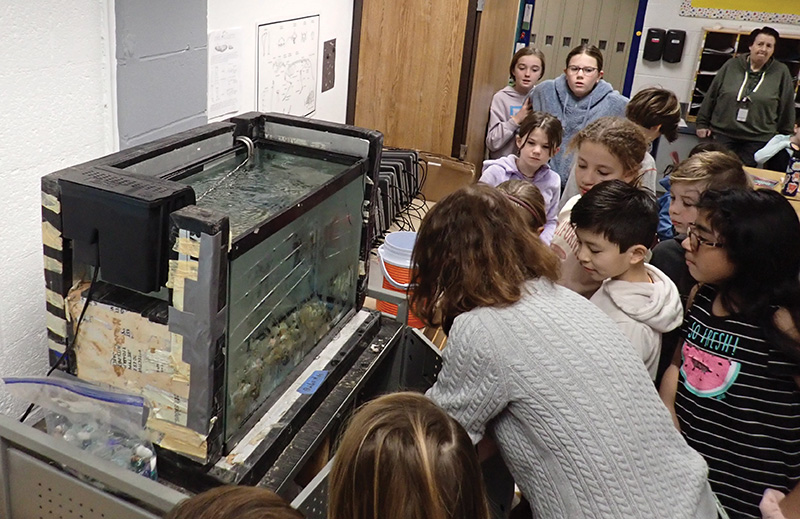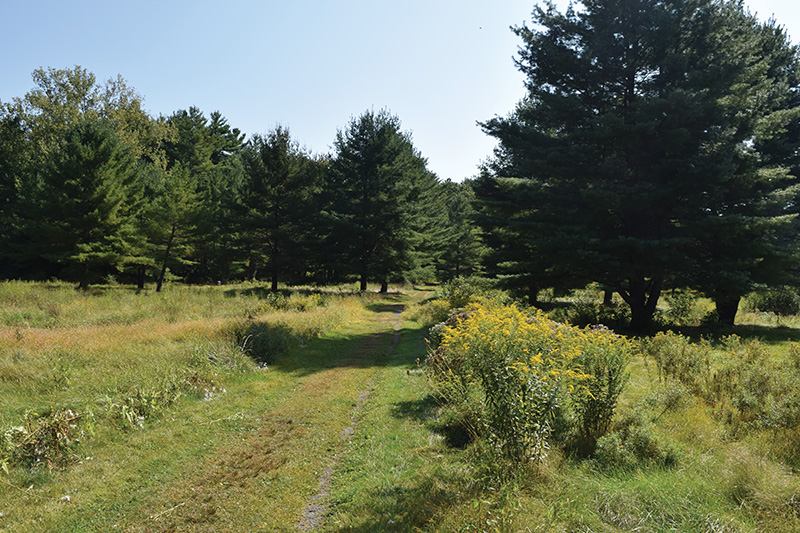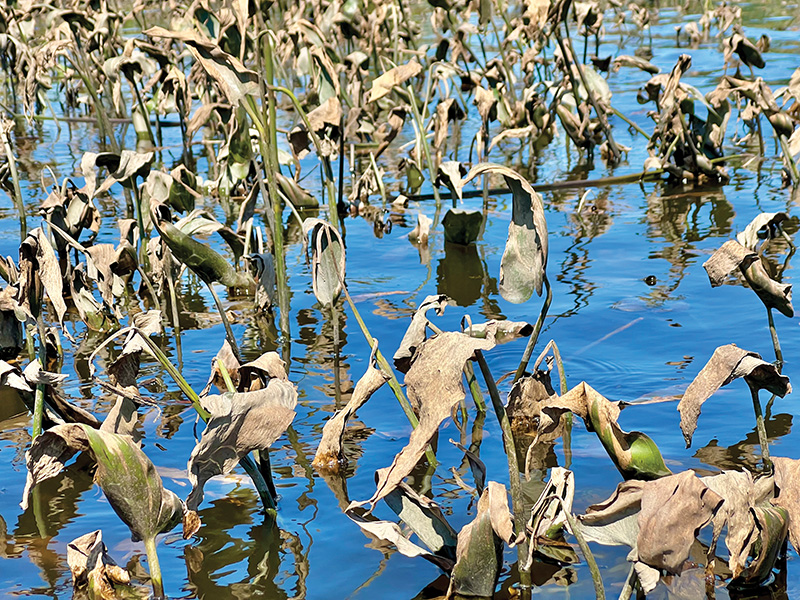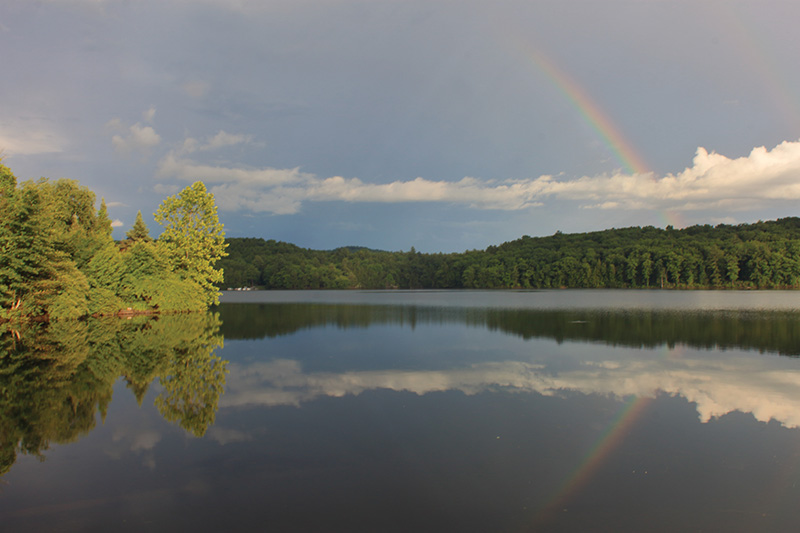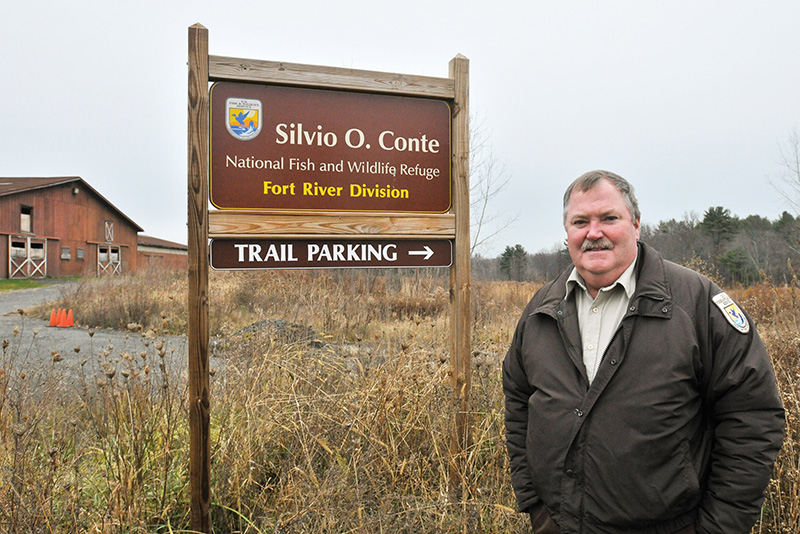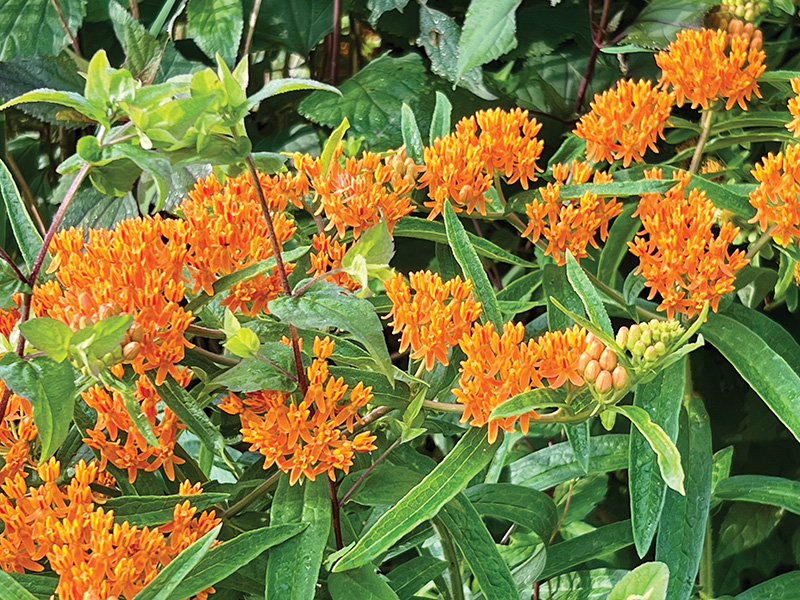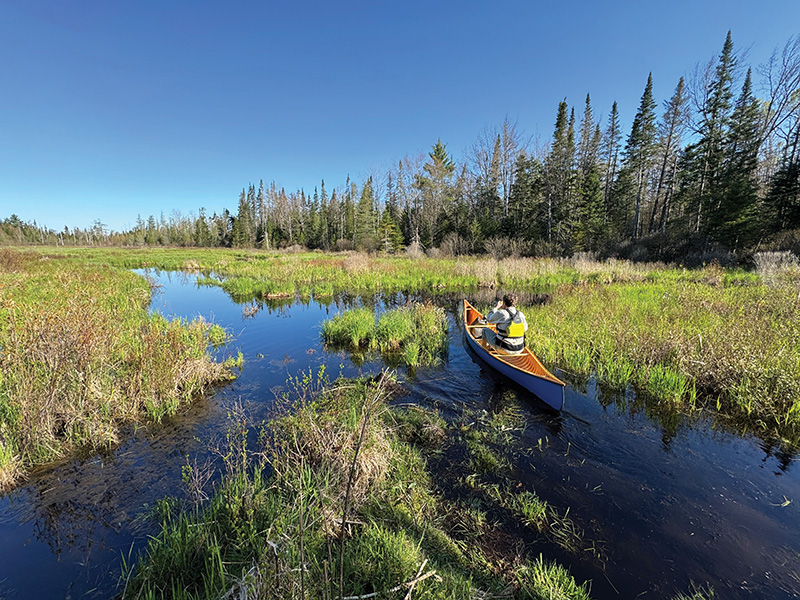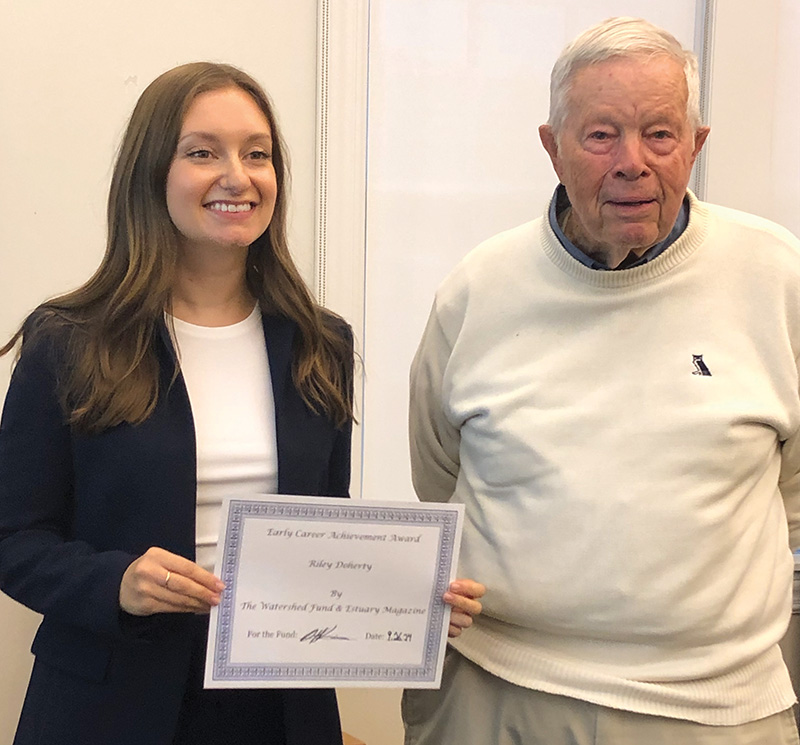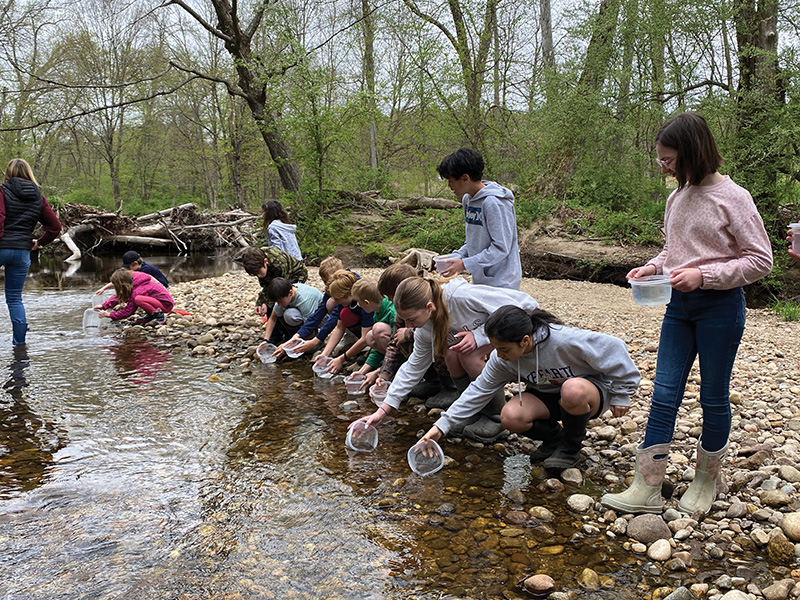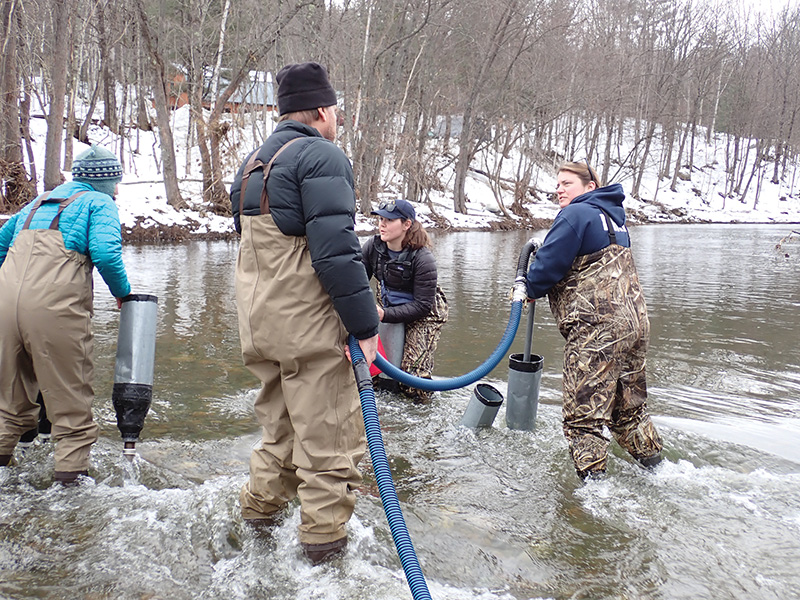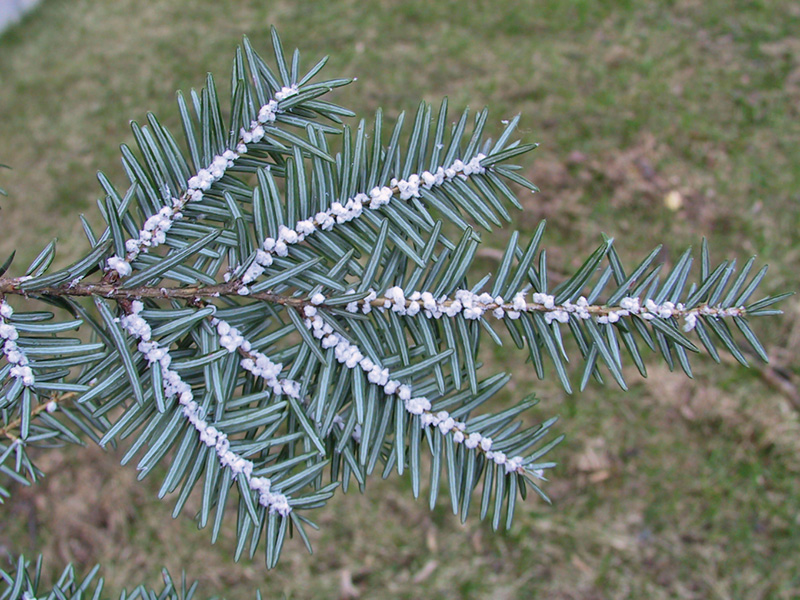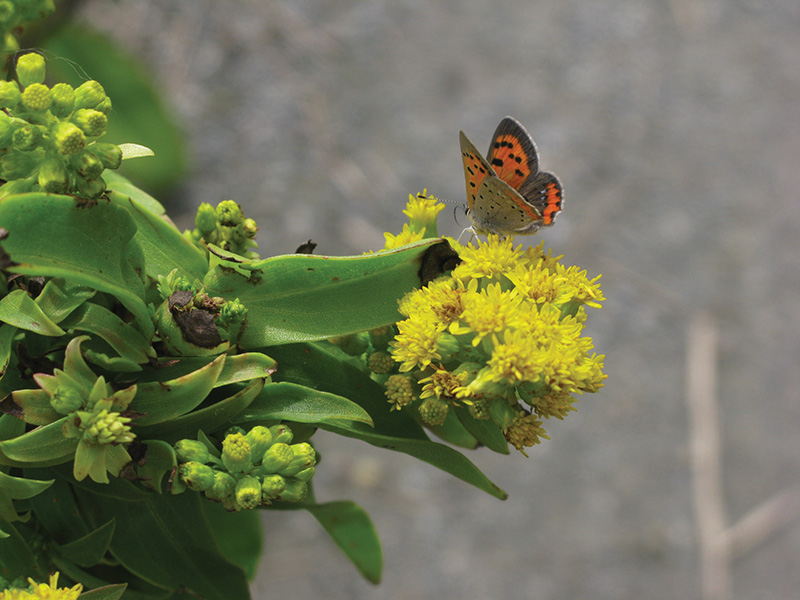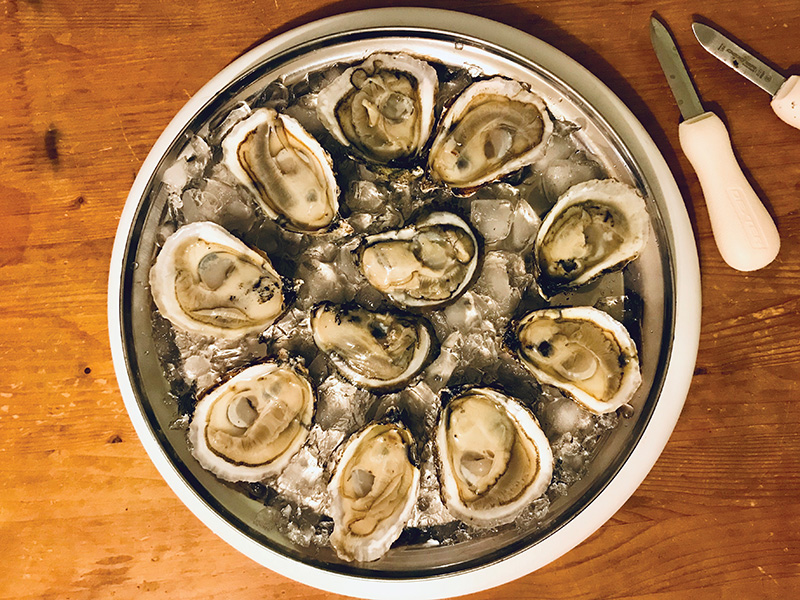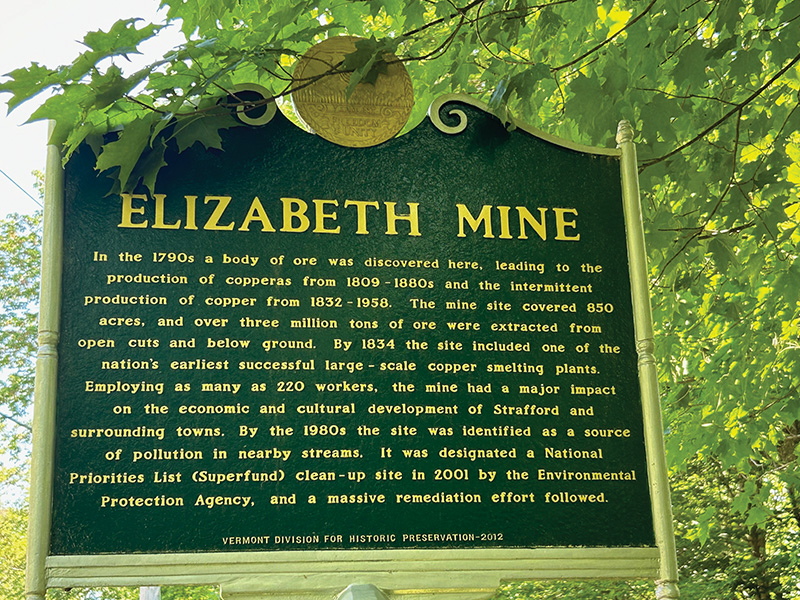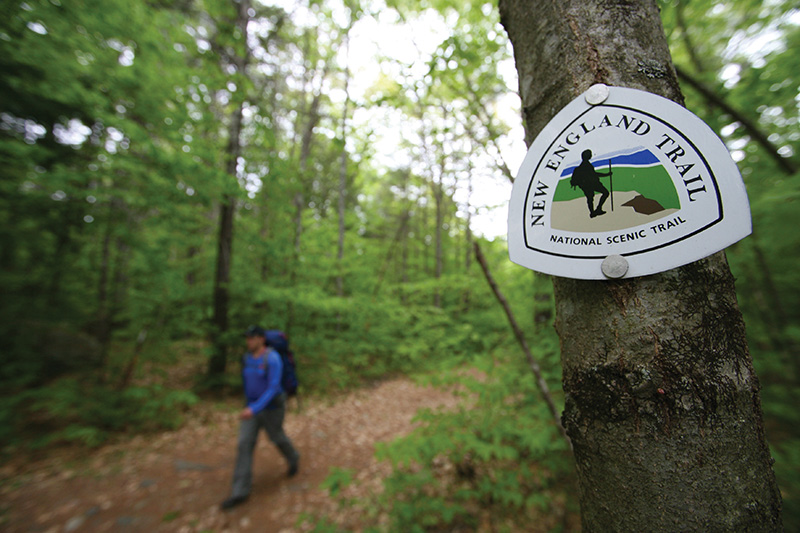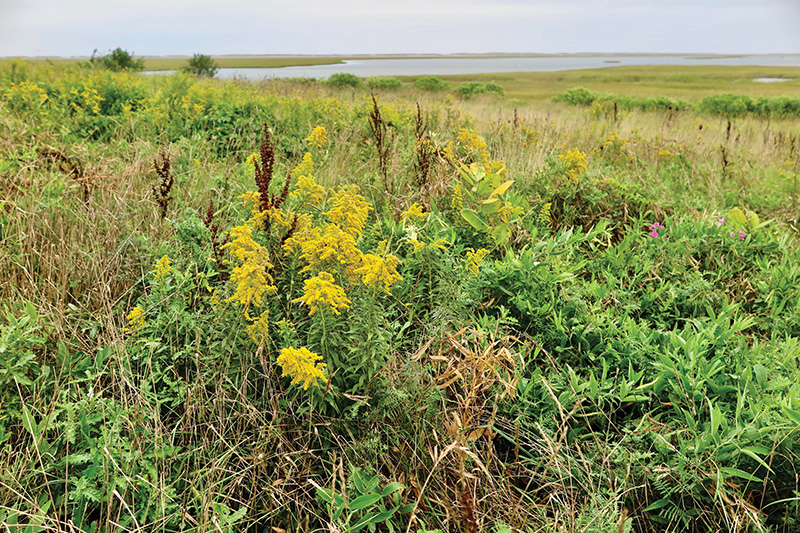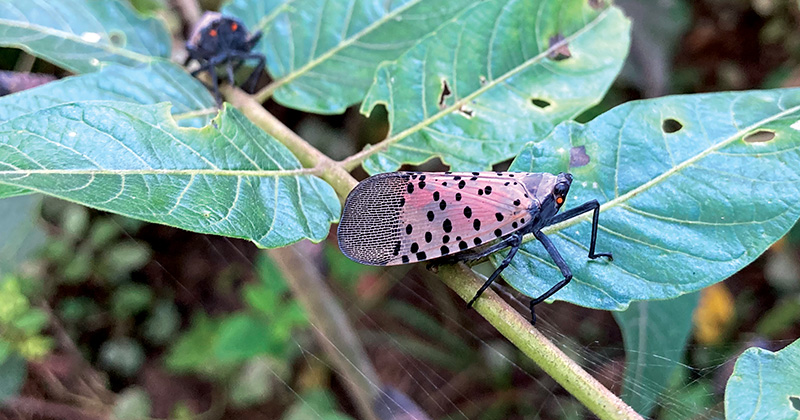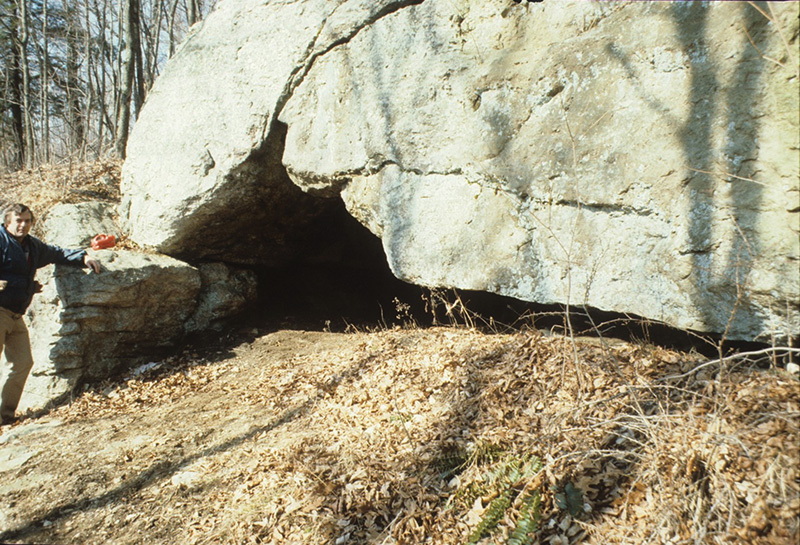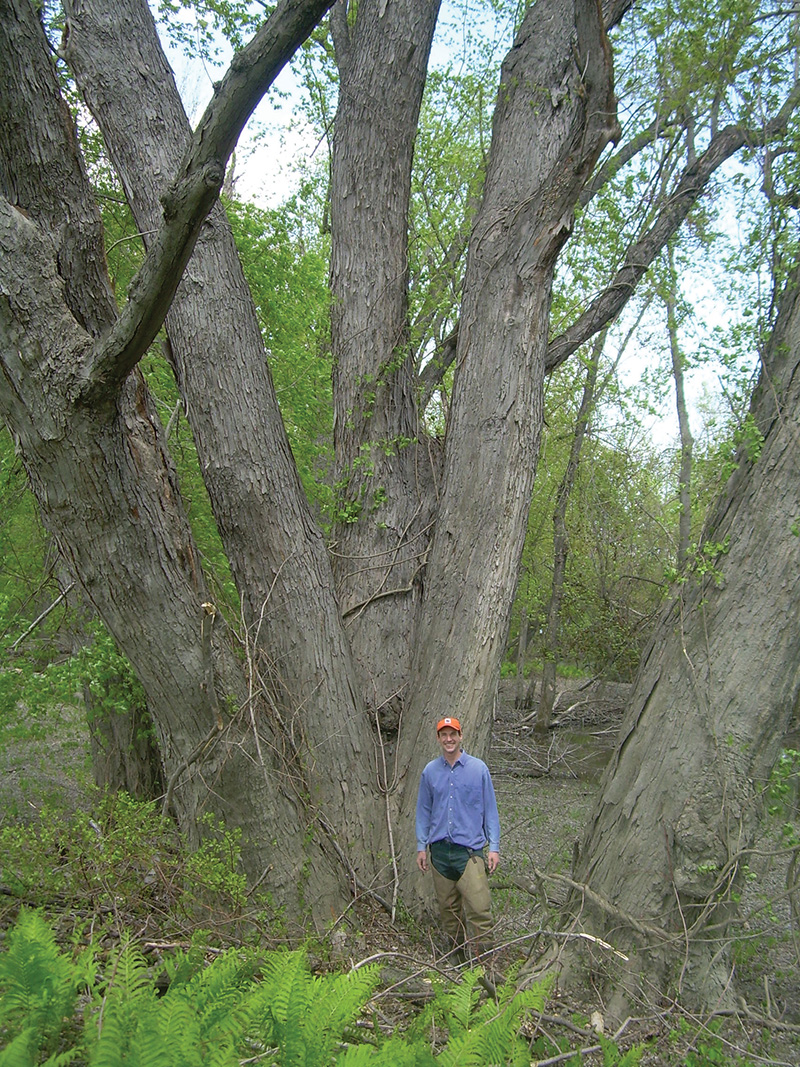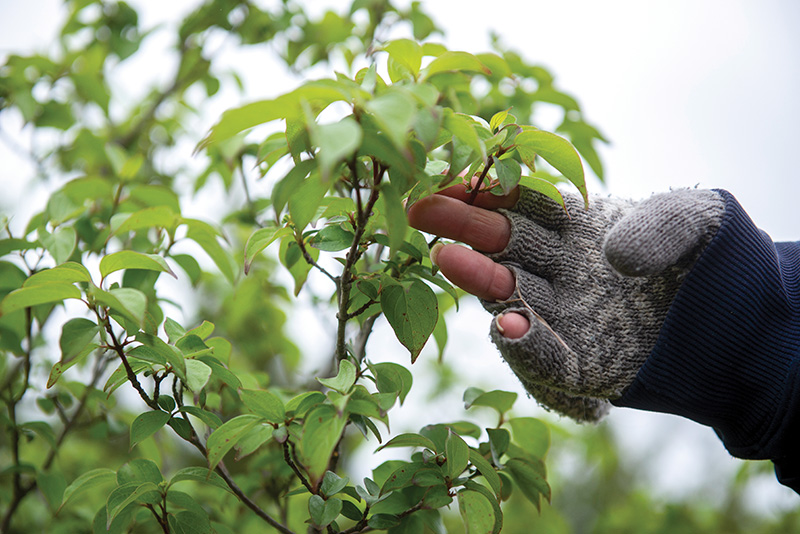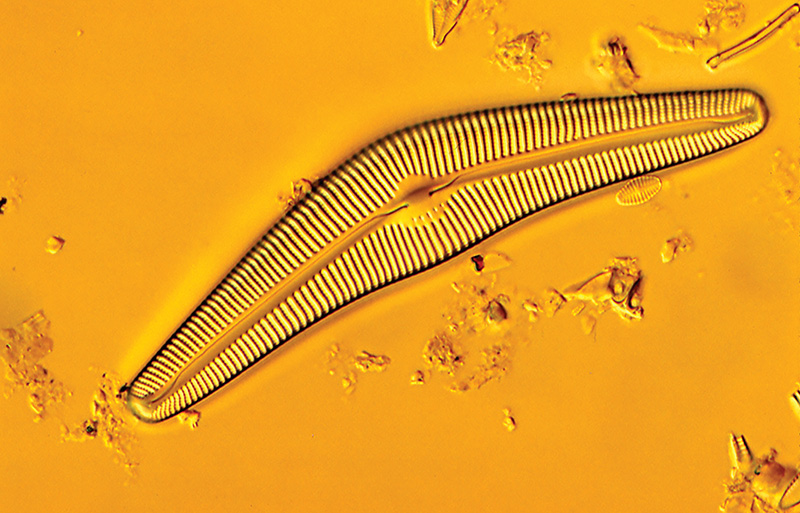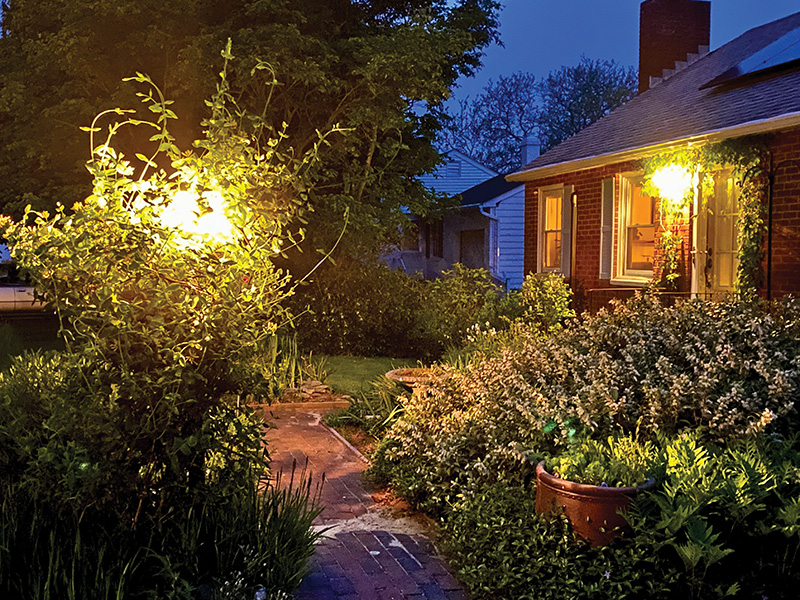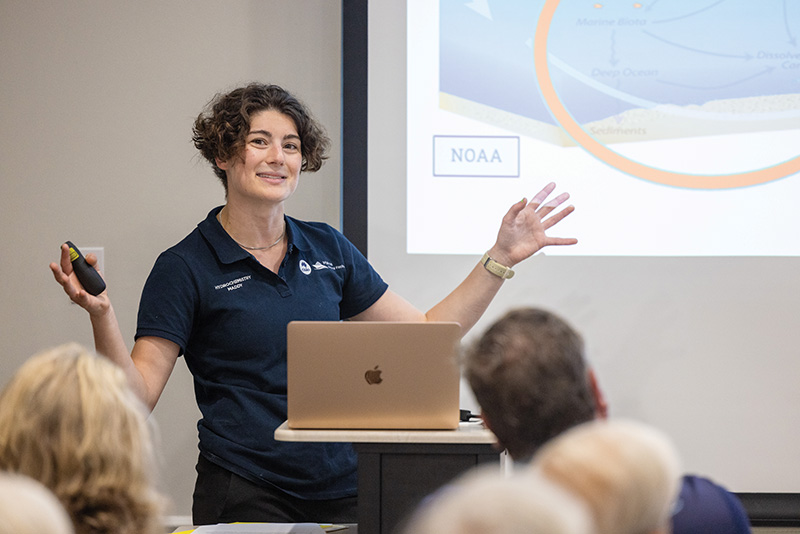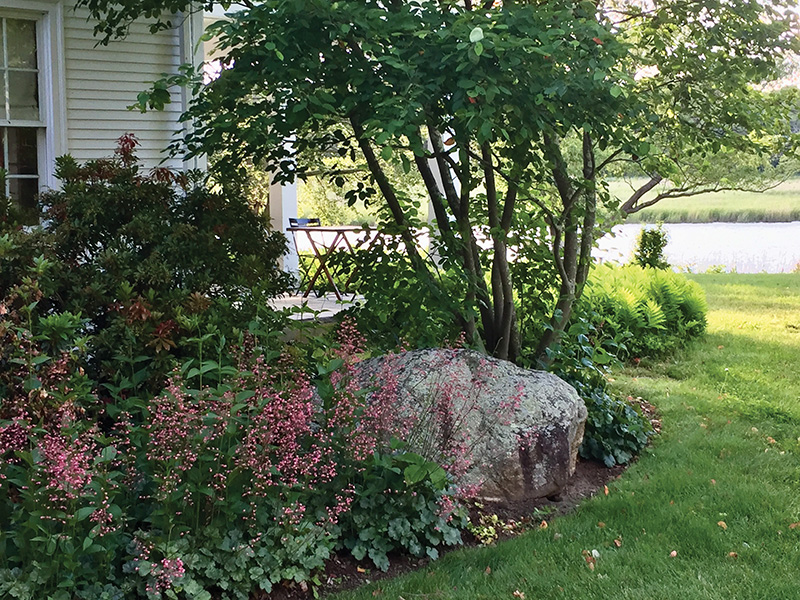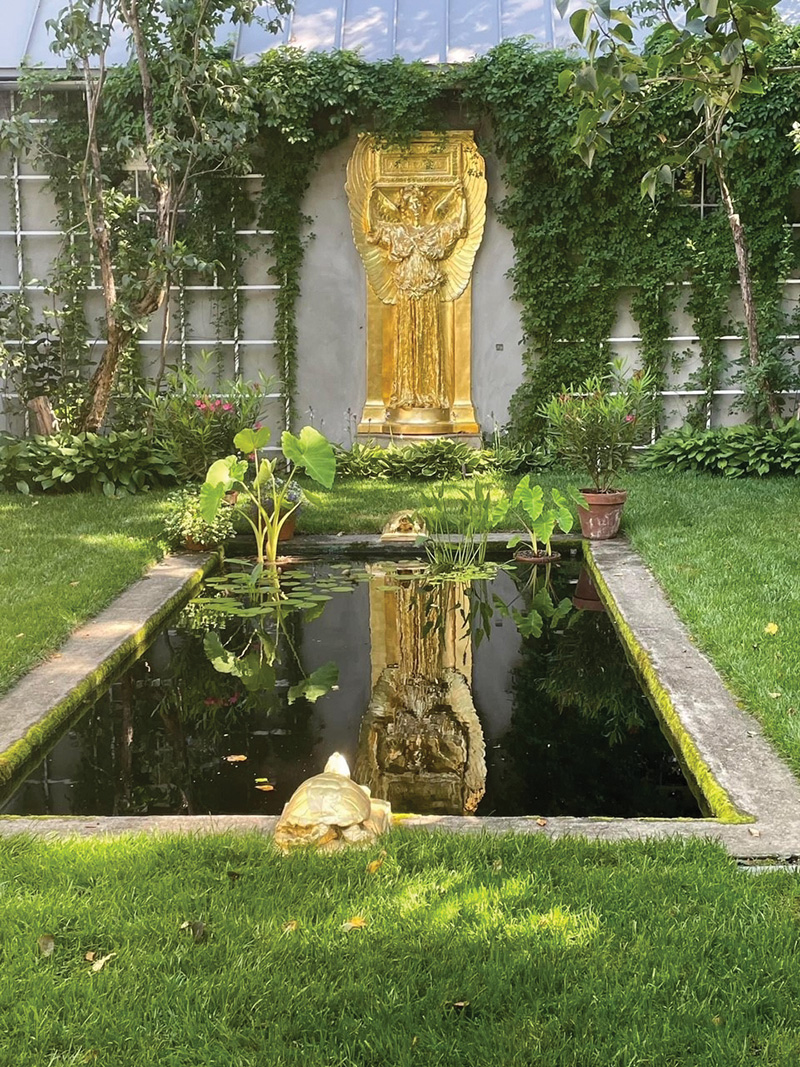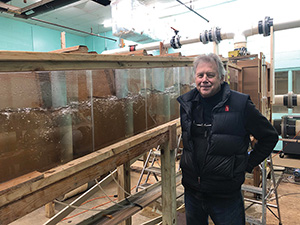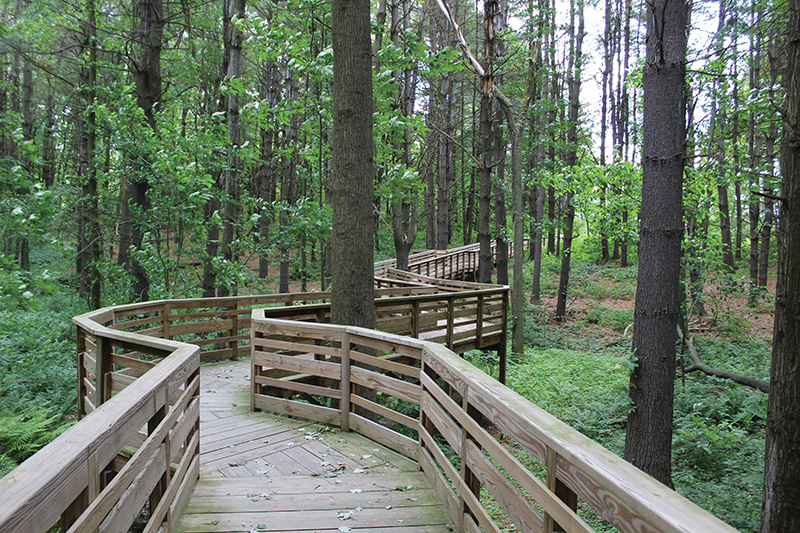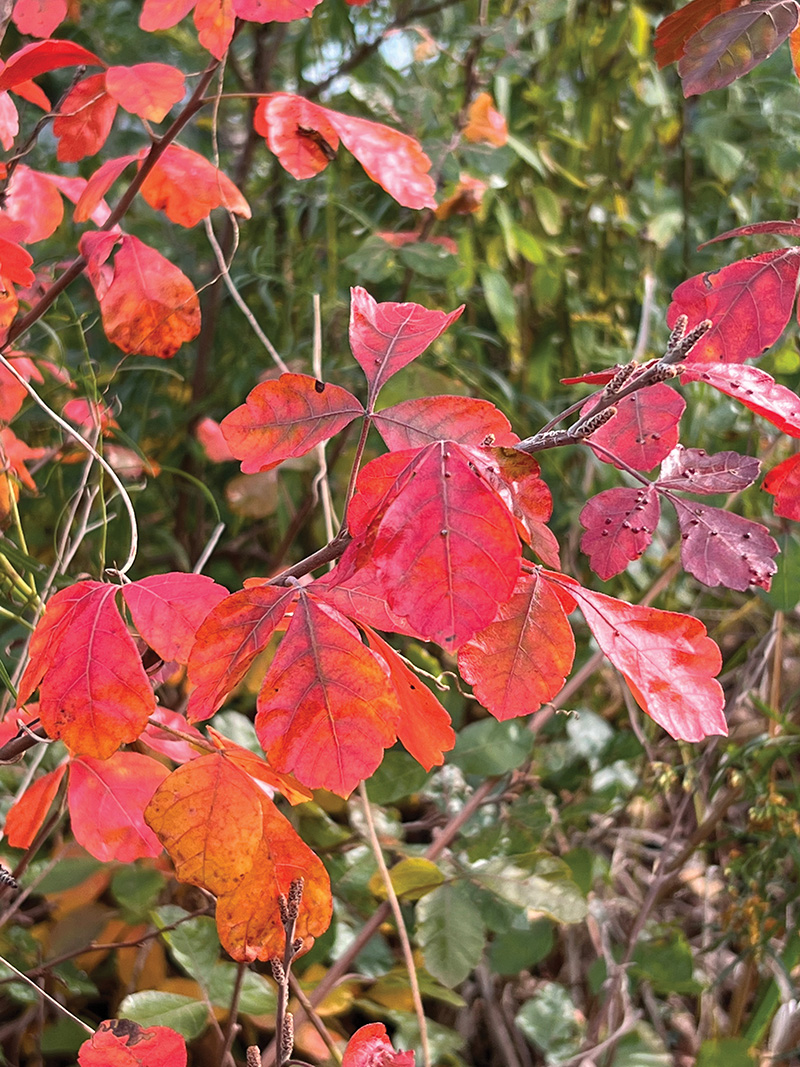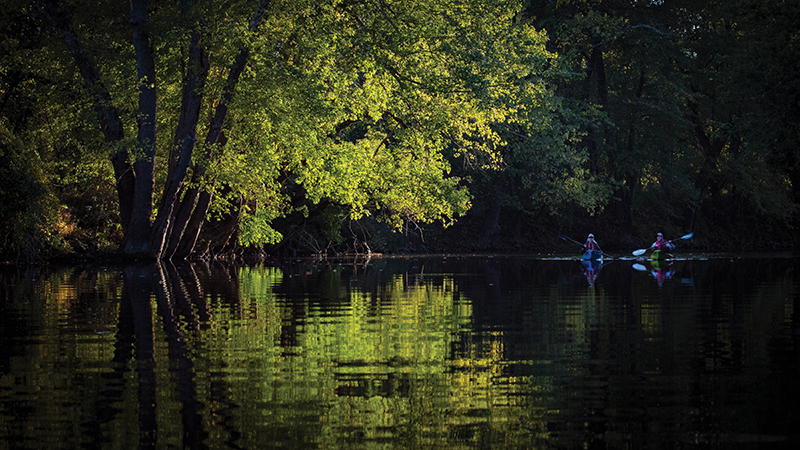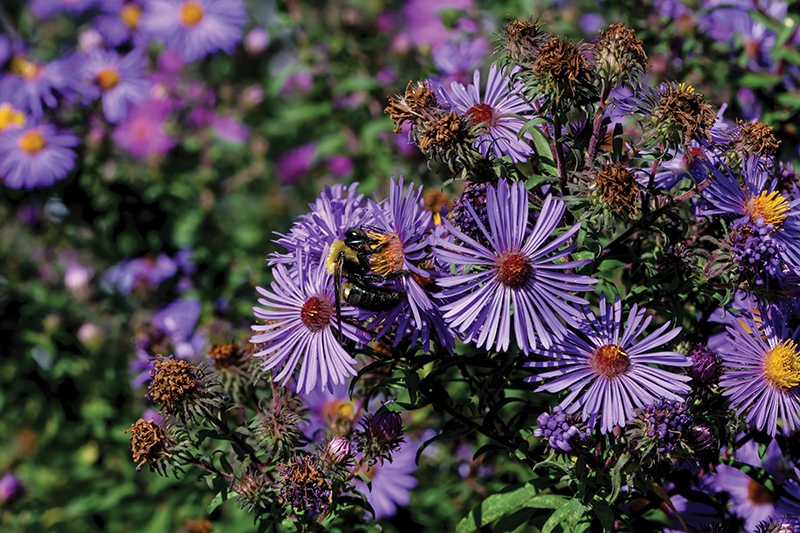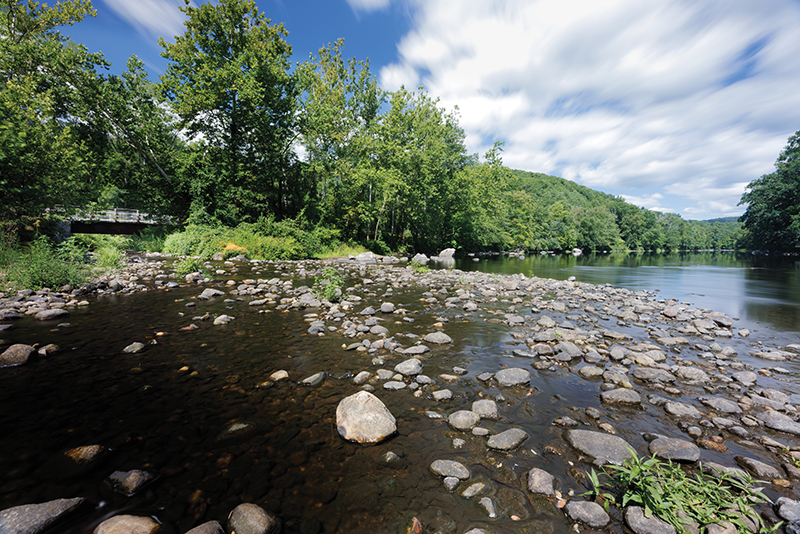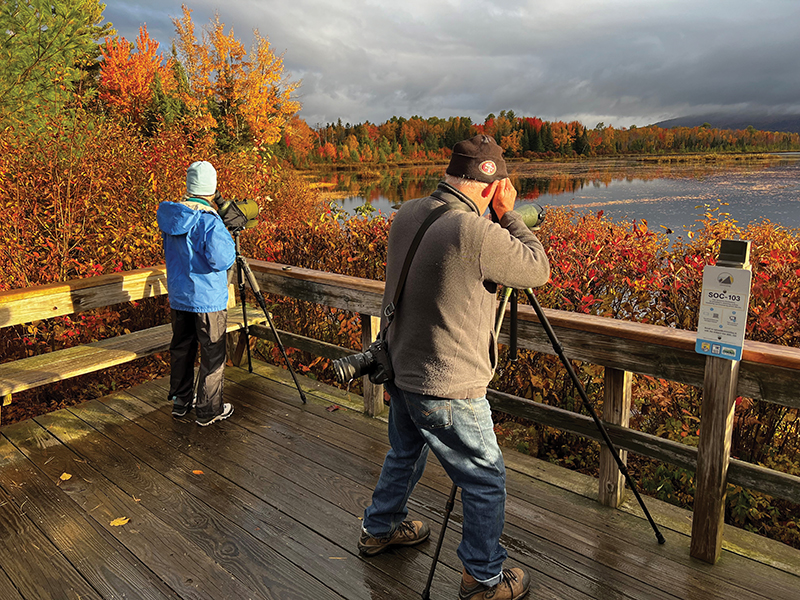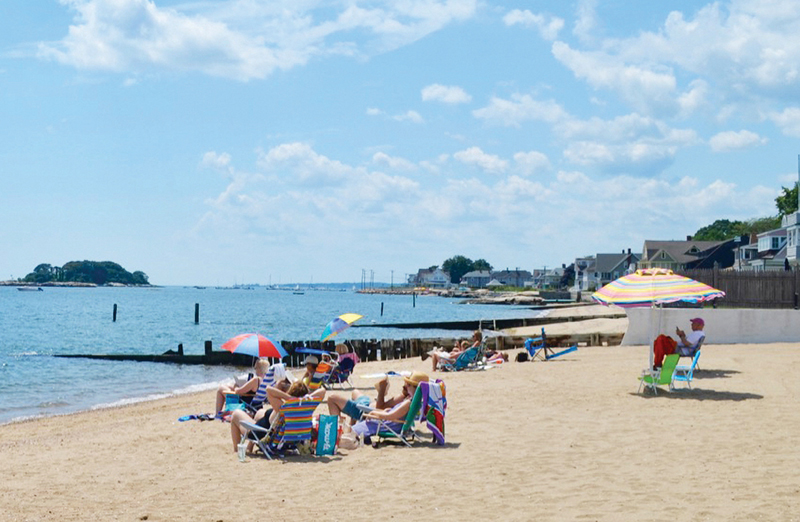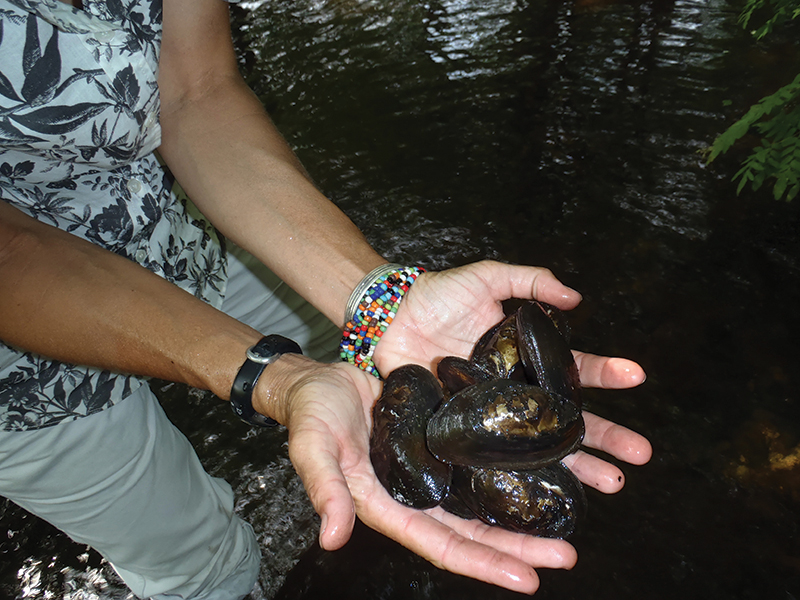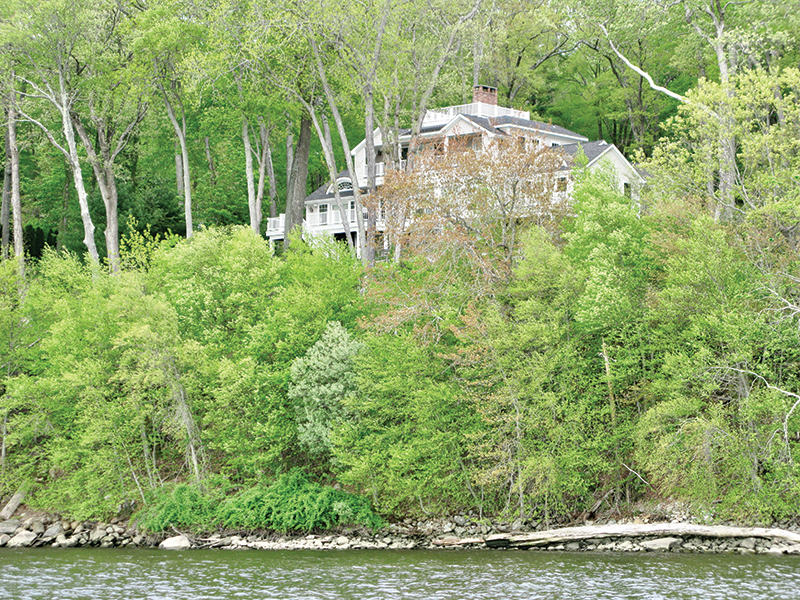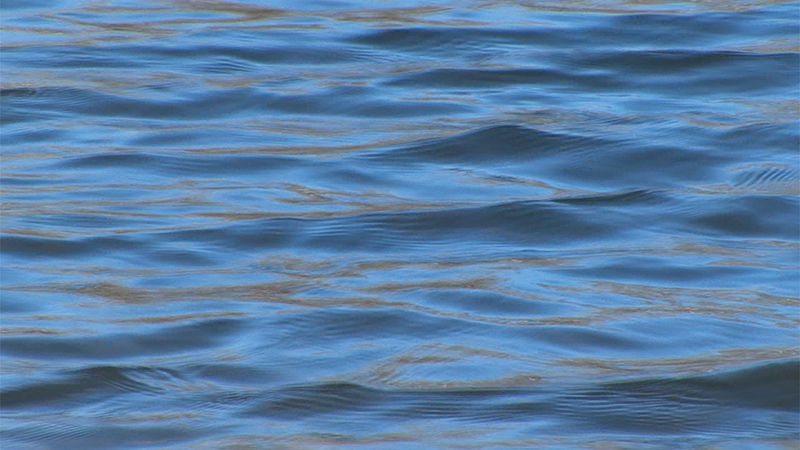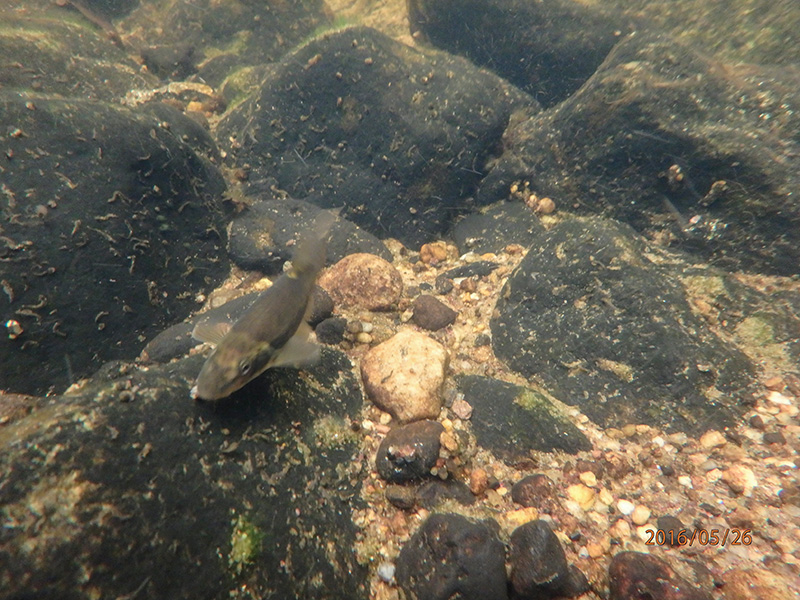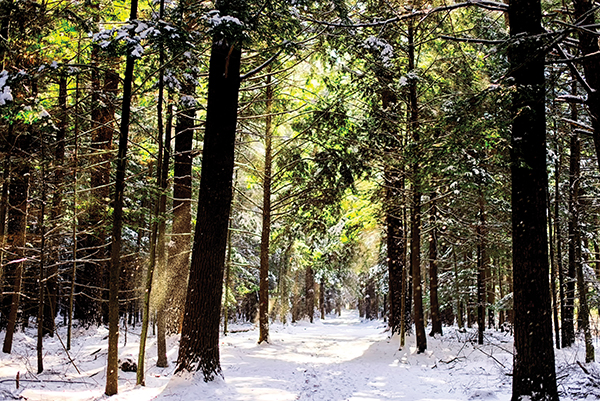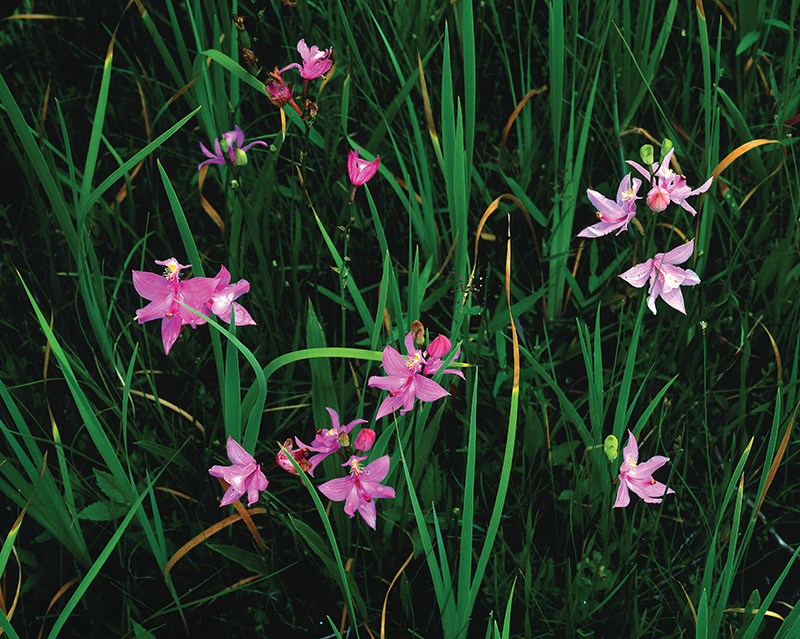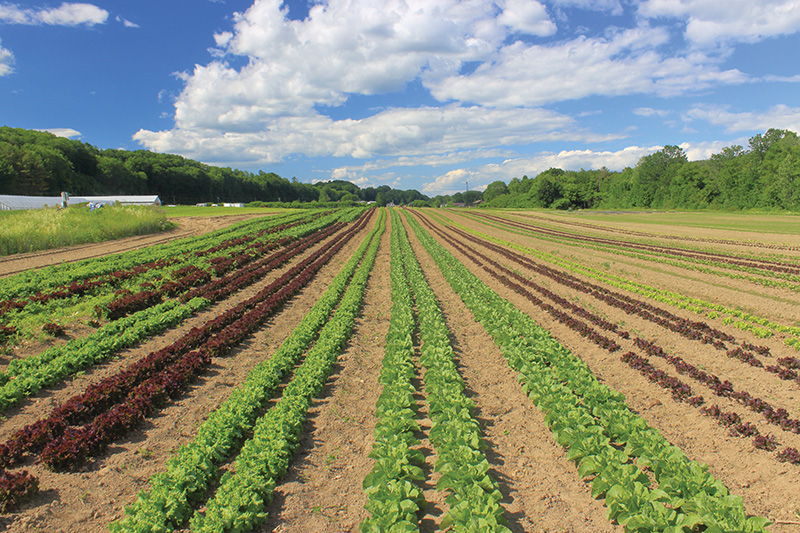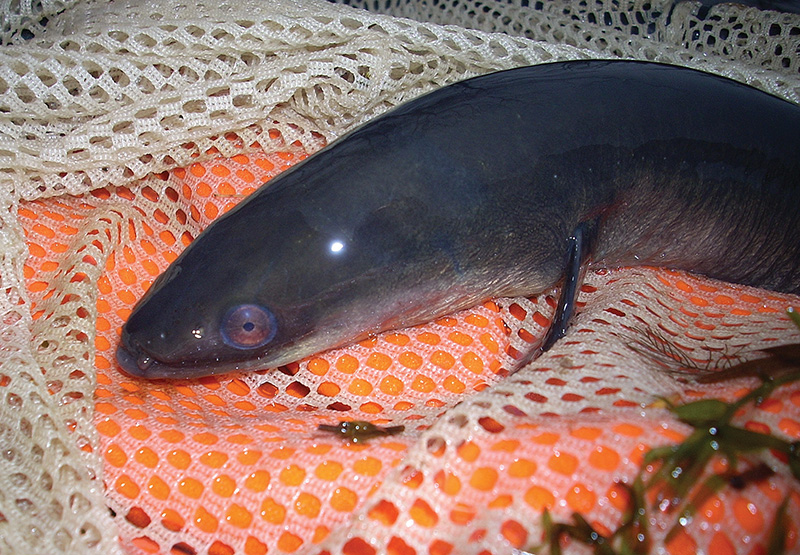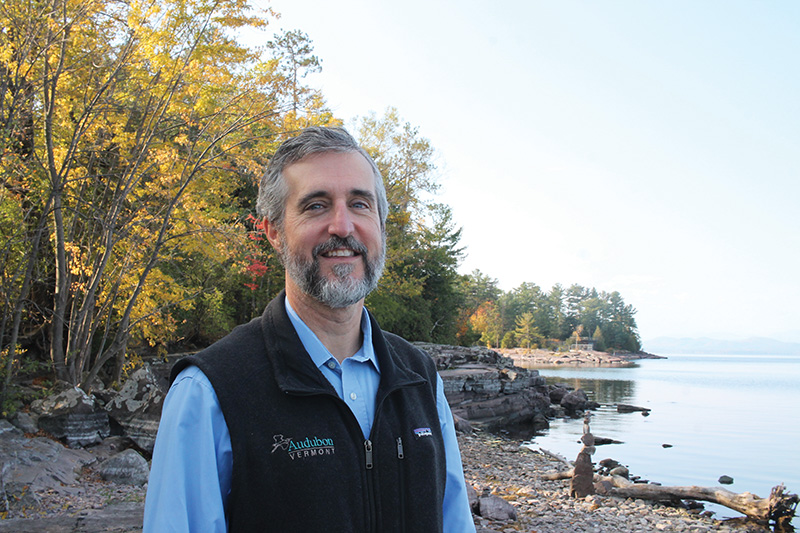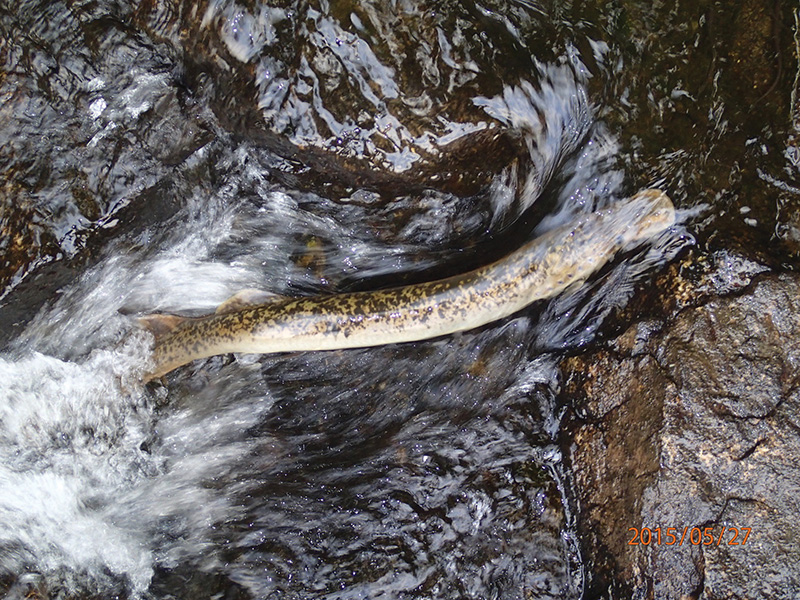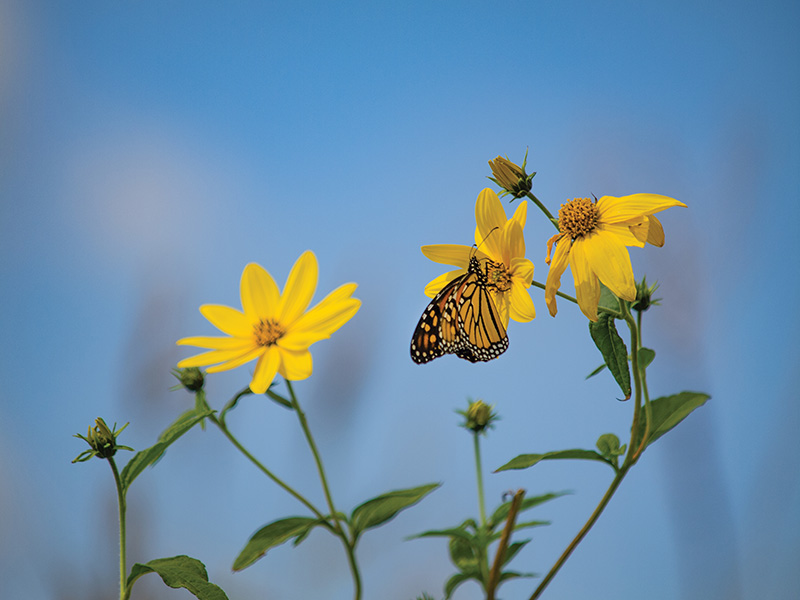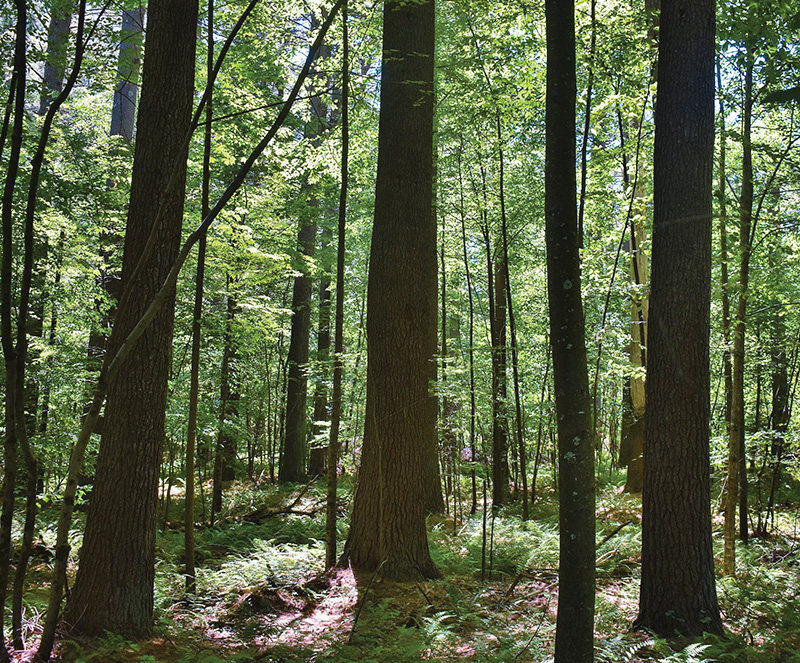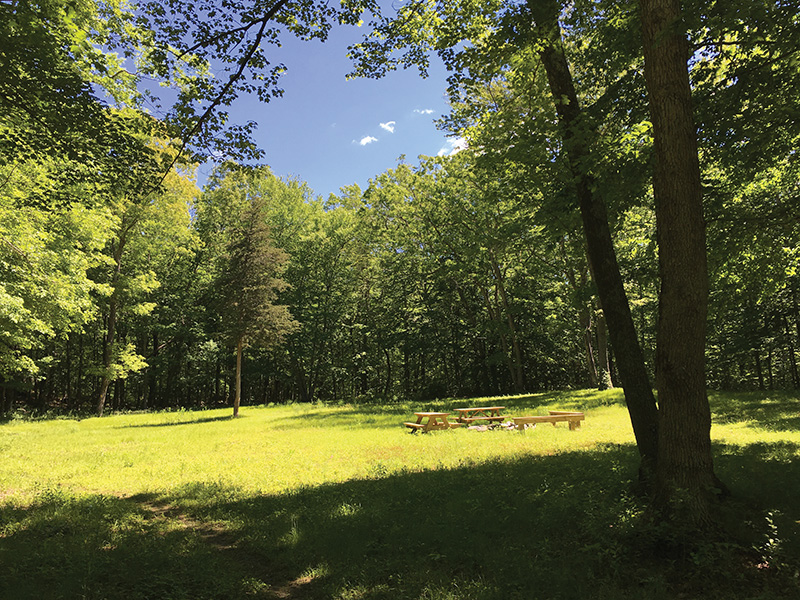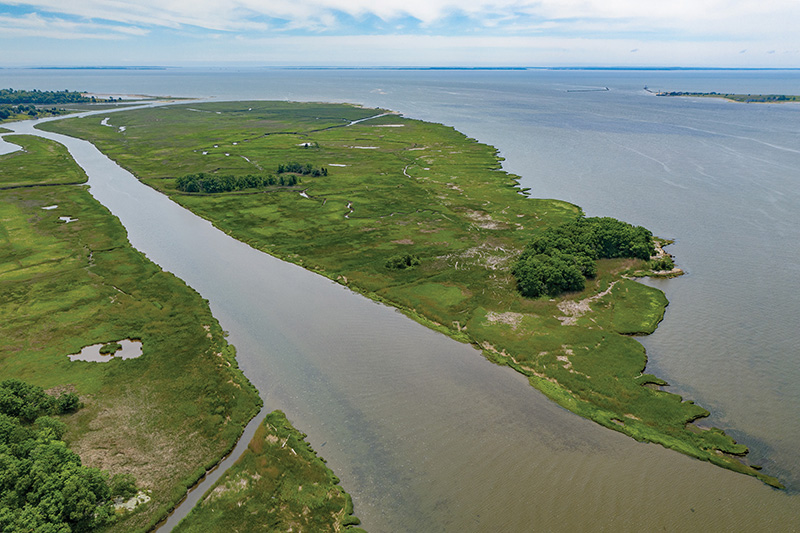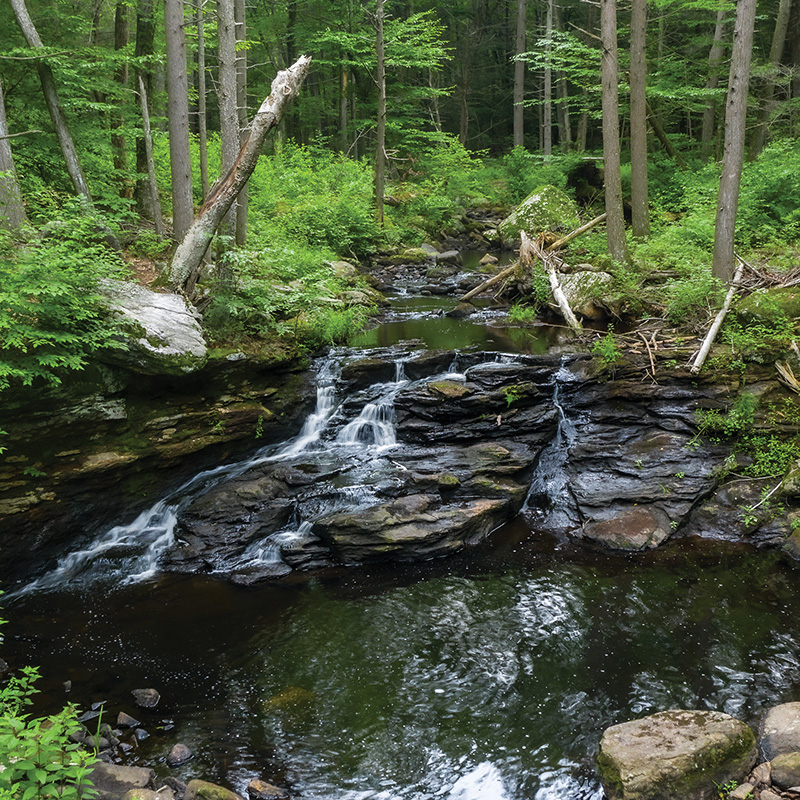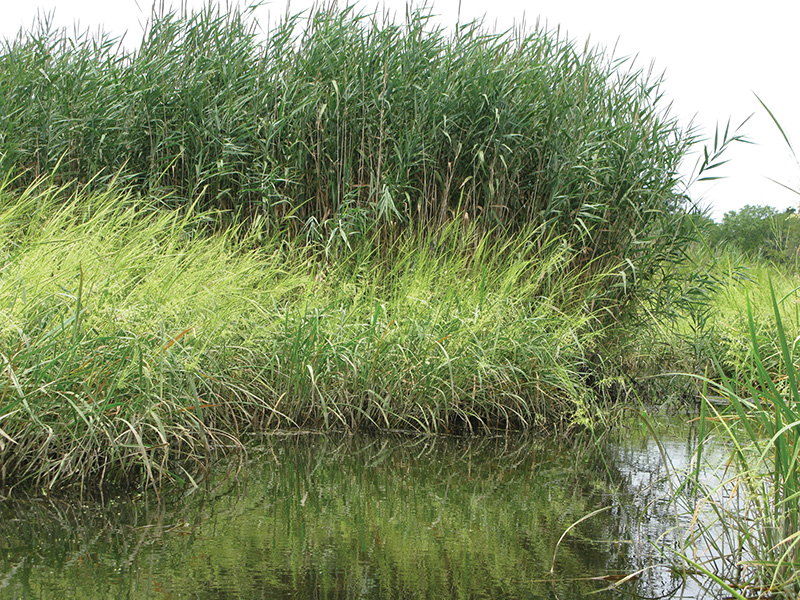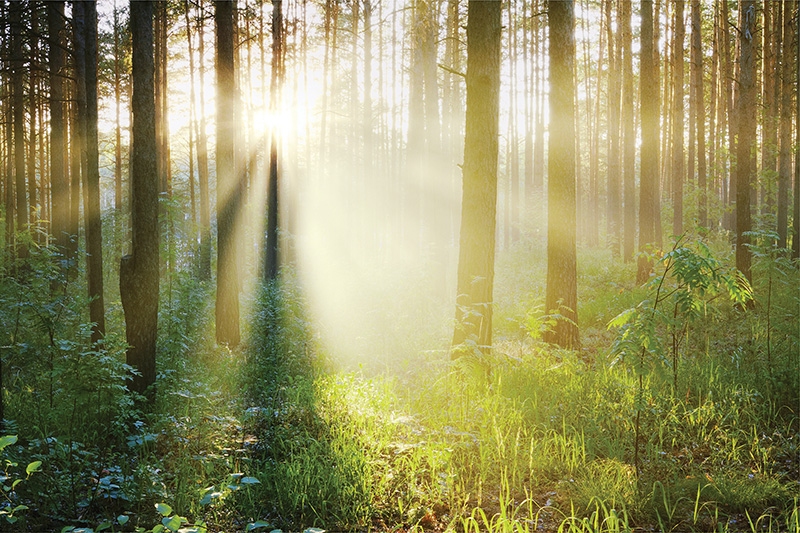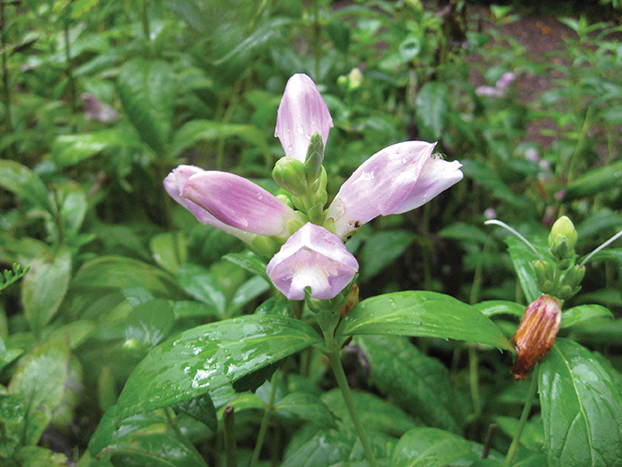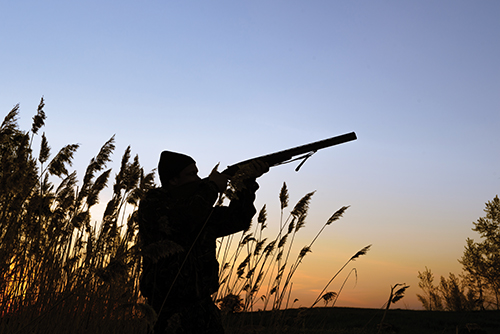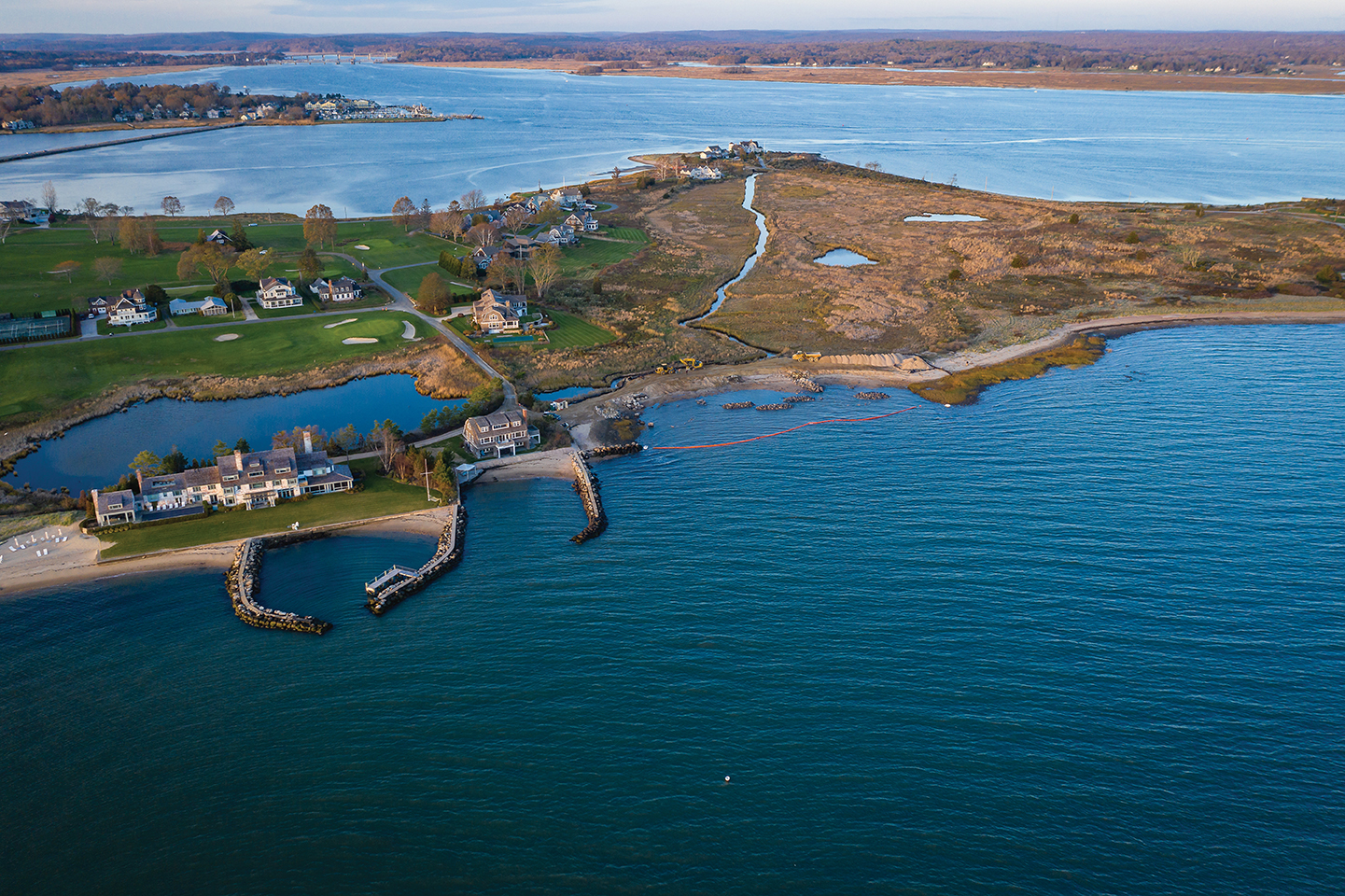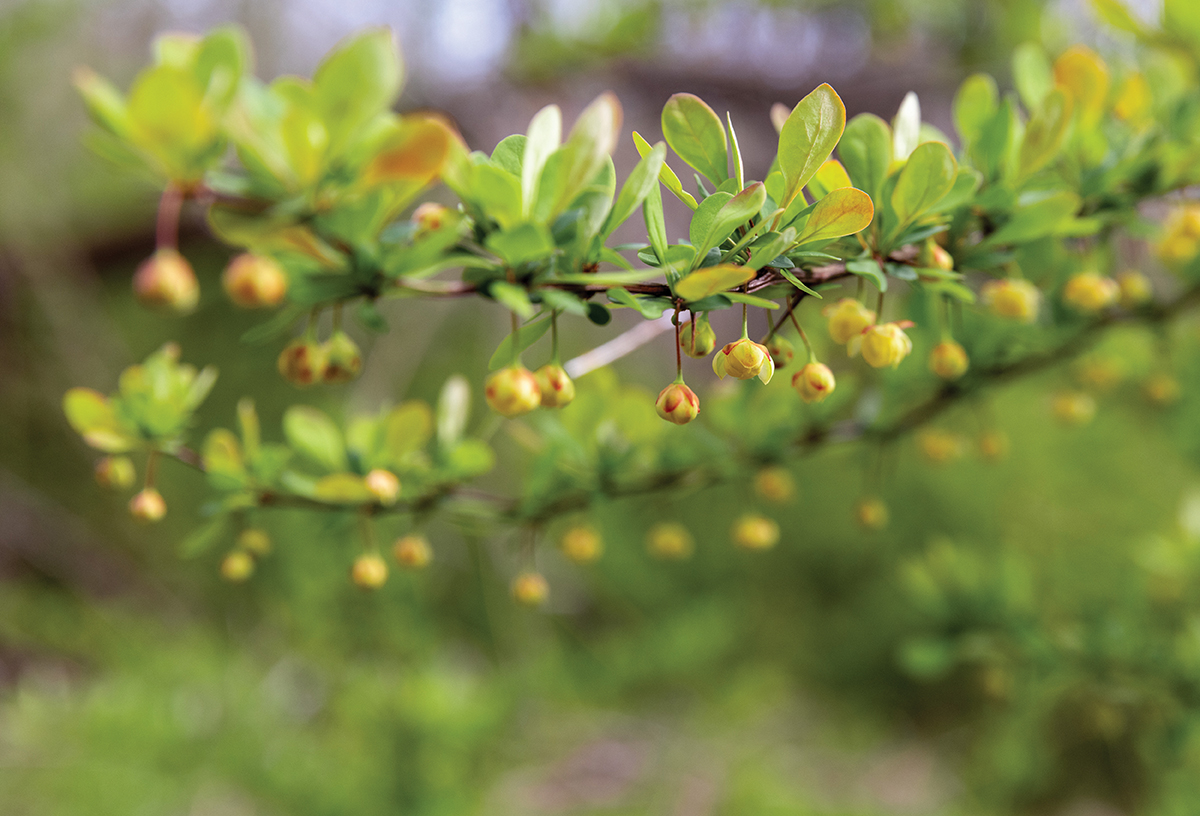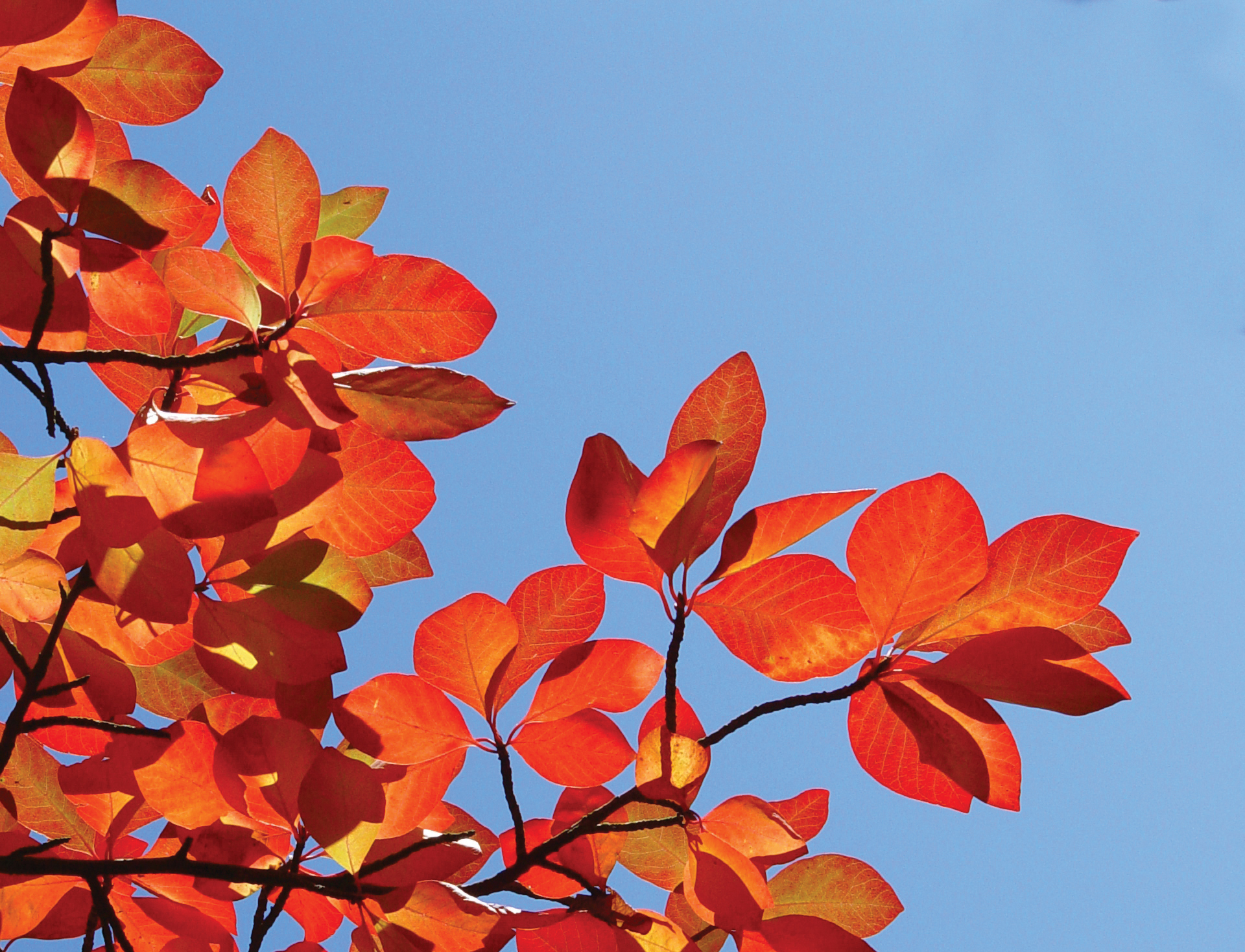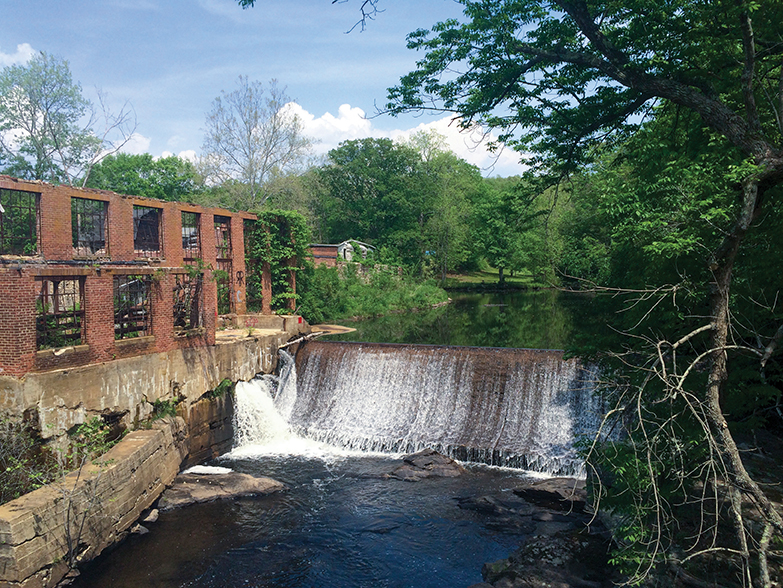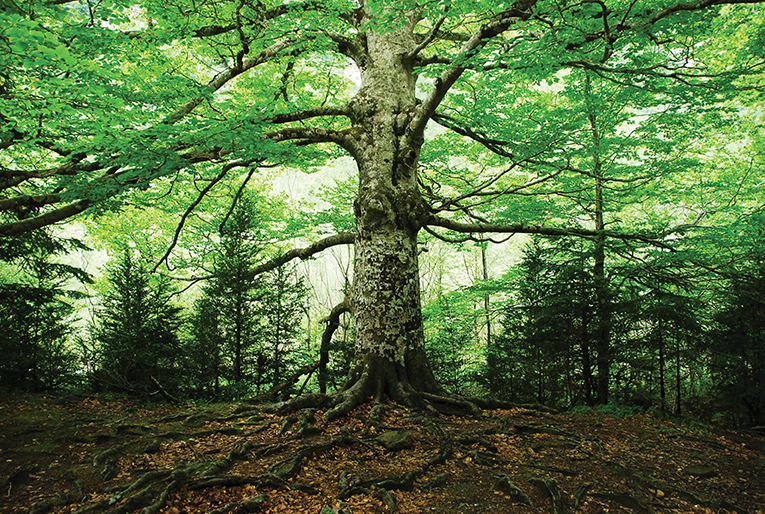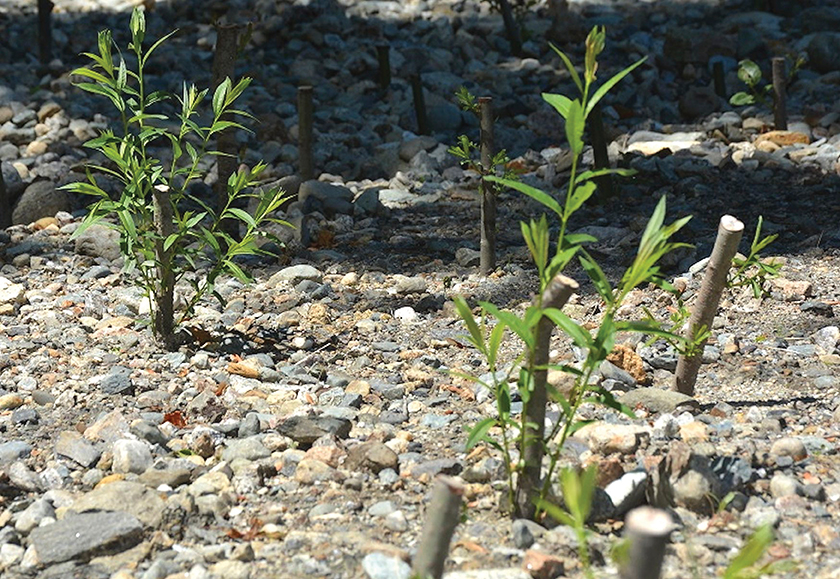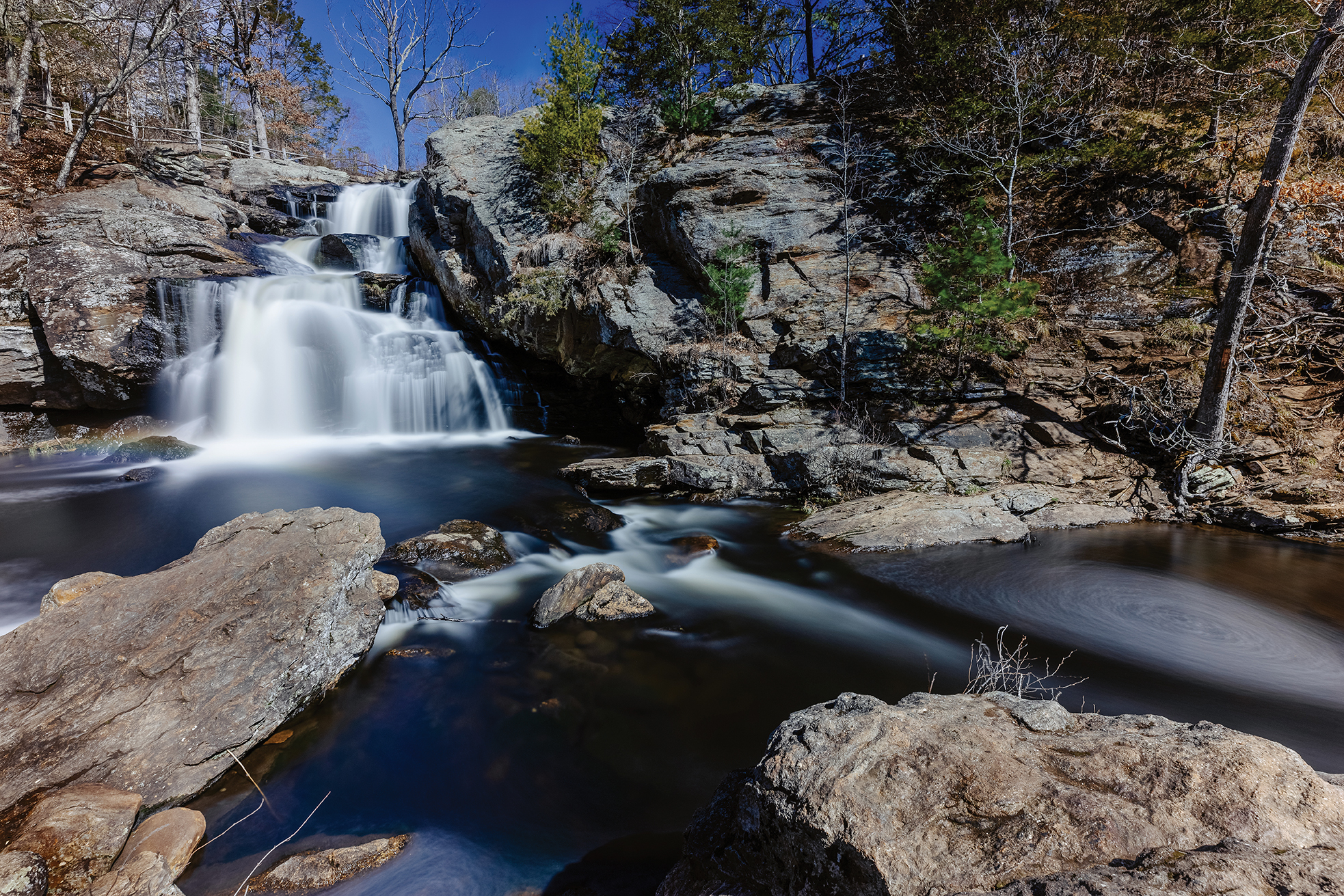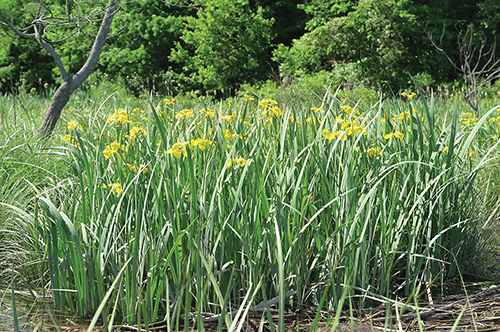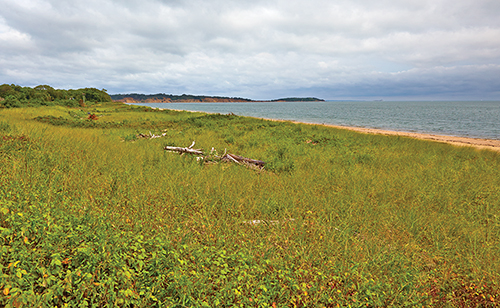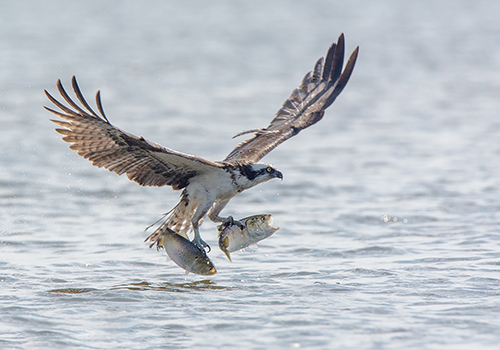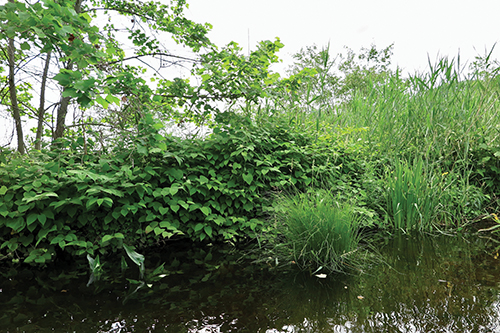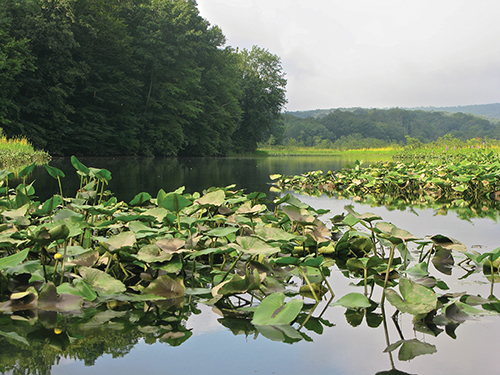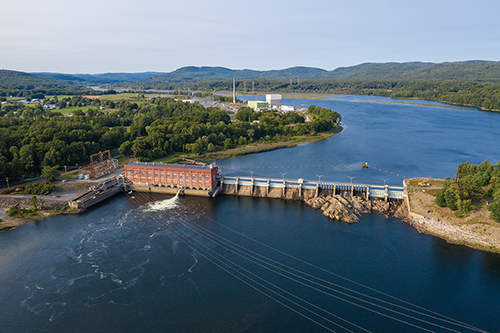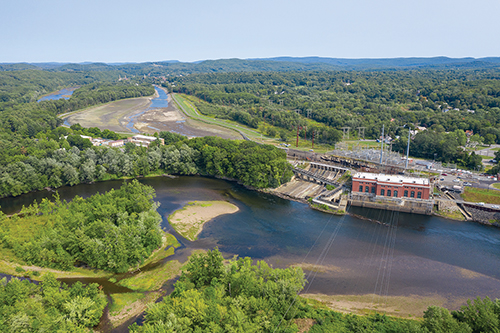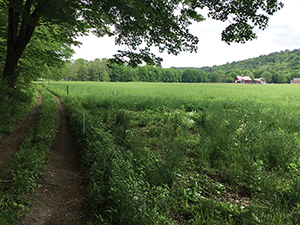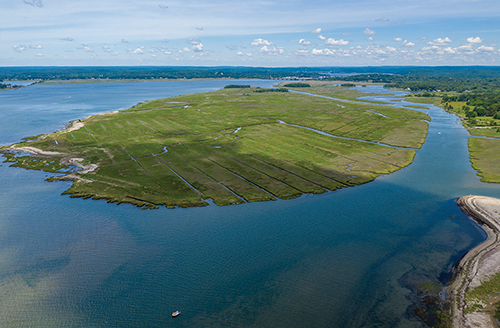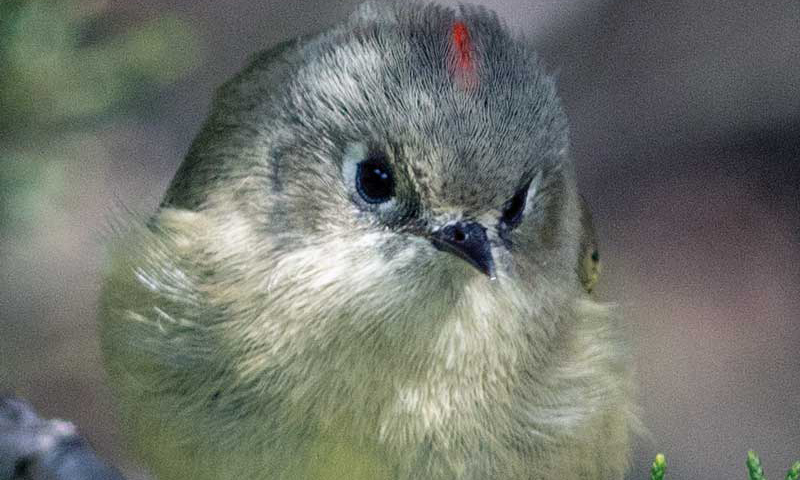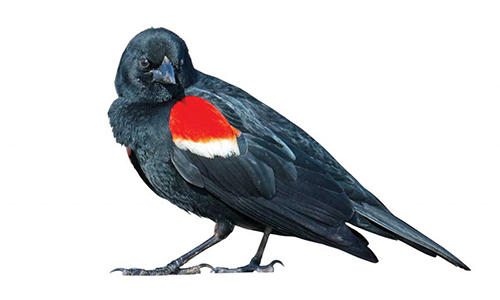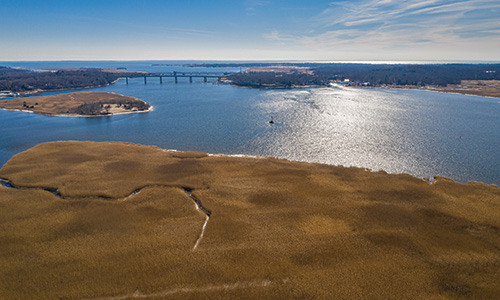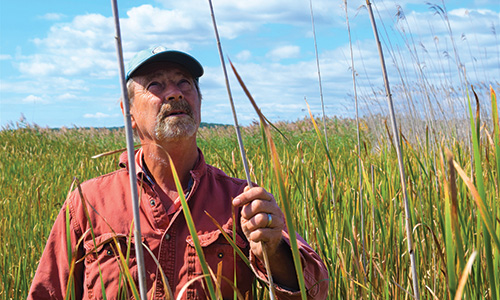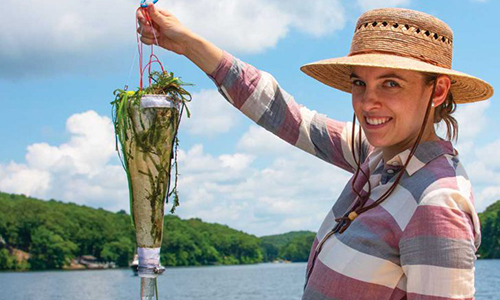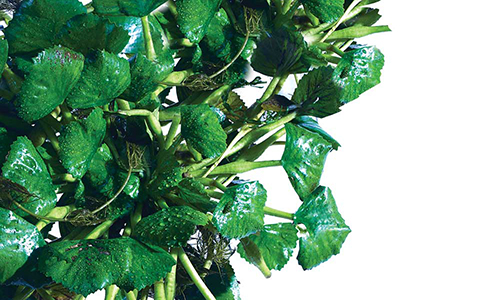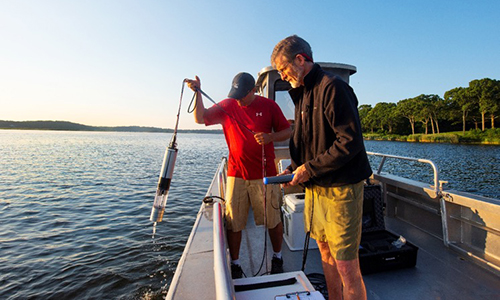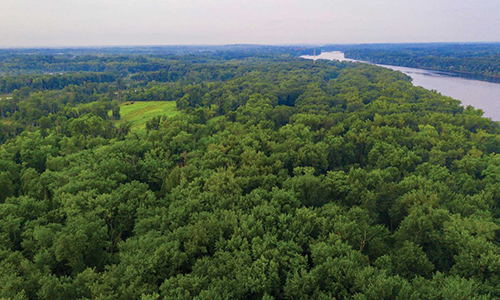Science &
Conservation
Below the Surface: Giving Tanks for Aquatic Education
March 1, 2025We often lament that the carefree days of exploring outdoors with only a dinner bell to call you home are unfamiliar to today’s children. But early learning about the natural world is important....
Rewilding in the Watershed
March 1, 2025Project partners from three different organizations wander across fields of goldenrod and burnweed under a perfect September sky. From a boardwalk just a few inches above the wetland soils we inspect alders and cattails, wool grass and smartweed....
Gardening for Good: Gardening for a Changing Climate
March 1, 2025In summer 2021, my neighbor sent me a text with a picture of an unusual bird wading in the marsh below his deck. You had to take note, as there are just no big pink birds local to Connecticut. Indeed, that bird—a roseate spoonbill—is typically a resident of Florida and tropics further south. Likely sent off course from a storm that blew it up the coast, it is somehow appropriate to elicit that recollection in a conversation about how our climate is changing in New England....
Local Wastewater Operators Persevere to Improve Our Public Waterways
March 1, 2025The adage “When it rains, it pours” is one that is becoming all too familiar and challenging for the future health of our local waterways....
Conte Corner: Fifty Years with Andrew French
March 1, 2025I n November 2024, I sat down with Andrew French, Refuge Manager of the Silvio O. Conte National Fish and Wildlife Refuge and the Stewart B. McKinney National Wildlife Refuge and longtime employee of the US Fish and Wildlife Service (USFWS), to discuss his career and perspectives on the Connecticut River watershed....
Gardening for Good: How to Find and Grow Native Plants from Seed
December 1, 2024Native plants are at home with local growing conditions and don’t require special tools or even a greenhouse to grow from seed....
Conte Corner: What’s in a Name and a Designation?
December 1, 2024National Natural Landmarks, American Heritage Rivers, and Wild and Scenic Rivers—the Connecticut River watershed has been awarded all of these federal designations....
Second Annual Award for Early Career Achievement in Environmentalism
December 1, 2024On September 26, 2024, The Watershed Fund and Estuary magazine gave its second Early Career Achievement Award in Environmentalism to Riley Doherty of New Haven, Connecticut....
Supporting More Than Salmon
December 1, 2024Historically the Connecticut River supported one of the largest annual runs of Atlantic salmon in North America....
Below the Surface: Plant Eggs to Grow Salmon
December 1, 2024Below the water’s surface and even below the top of the streambed is the hyporheic zone. It consists of rocks of many different sizes between which water flows like an underground stream...
What Does the Future of Our Forests Look Like?
December 1, 2024These are difficult times for our forests. Non-native pests and pathogens are causing great harm and, in some cases, nearly eradicating entire tree species....
Gardening for Good: Ask for Them by Name
September 1, 2024Fall is a great time for flowers. They bring a crescendo of color and activity before shorter days and cooler temperatures....
The Oyster
September 1, 2024Connecticut is known around the world for its oysters. Long before Dutch explorer Adriaen Block sailed along the coast encountering vast oyster reefs along his way, scores of Indigenous American tribes had been migrating seasonally to the shore to gather the iconic shellfish....
Green Bullets
September 1, 2024As a companion to my Fall 2023 story, “The Most Dangerous Animal in America: Shoot to Cull,” it’s important to bring readers’ attention to another critical issue that is little talked about. I begin the story on the rim of the Grand Canyon....
Elizabeth Mine
September 1, 2024From pre-colonial virgin forest to copper ore discovery in 1789 by farmer John Taylor, to over 150 years of commercial copper extraction, to abandonment and toxic spoils leached into the Ompompanoosuc River (a tributary of the Connecticut River), to complete reclamation, the mine has undergone profoundly transformative changes....
Below the Surface: Tunneling for Cleaner Water
September 1, 2024The Connecticut River is one of the cleanest major rivers on the East Coast, mostly free of untreated sewage....
Conte Corner: The New England National Scenic Trail
June 1, 2024The New England National Scenic Trail (NET), a 235-mile-long hiking trail stretching from Long Island Sound in Connecticut to the New Hampshire-Massachusetts border, is a close-to-home trail for millions of New Englanders....
Gardening for Good: Rethinking Weeds
June 1, 2024Any number of dictionaries refer to the word “weed” using distasteful associations. For example, you “weed out” troublesome things or people that are “useless or harmful.”...
The Dreaded Spotted Lanternfly
June 1, 2024Squish them. Squash them. Stomp them. Smash them. That’s been the order of the day from multiple government agencies inciting the citizenry to bring down the boot on any invasive spotted lanternflies they encounter....
Moodus Noises
June 1, 2024Since the earliest days of English settlement in the 1600s, folks correctly identified the strange rumblings in the Moodus section of East Haddam, Connecticut, as earthquakes that are heard more than felt, but it was centuries before science explained the cause and mechanism for their creation....
Conte Corner: Celebrating Trees
March 1, 2024As spring arrives, we’re celebrating trees and their important—and complex—role in preserving the Connecticut River Watershed....
Is It Too Soon to Talk About Climate Natural Solutions In Vermont?
March 1, 2024Just as birds need healthy forests and grasslands, protected wetlands, and connected floodplains for habitat, Vermont’s human communities need those same landscape features to survive the onslaught of weather shifts caused by global climate disruption....
Cymbella Cistula
March 1, 2024While many are familiar with the fish and wildlife that define our landscapes, there are other lesser-known critters that play a role in creating and maintaining a healthy ecosystem....
Gardening for Good: The Dark Side of Light
March 1, 2024The first twinkle of a June firefly is one of the greatest delights I experience from my yard...
First Annual Award for Early Career Achievement in Environmentalism
December 1, 2023On Tuesday, August 15, at 6:30 p.m. at the Old Lyme Phoebe Griffin Noyes Library, Estuary magazine and its parent The Watershed Fund bestowed its first Annual Award for Early Career Achievement in Environmentalism on Madeline Lahm....
Gardening for Good: Energy Smart Landscaping
December 1, 2023Winter is a good season to take a closer look at the “bones” of your home landscape, with an eye toward planning something new or editing what you have....
Conte Corner: National Parks
December 1, 2023Do you know how many National Park units there are in New England and the Connecticut River watershed?...
Migrating Under a Microscope
September 1, 2023Since their arrival in the 1600s, New Englanders have constructed fishways to help fish pass over small dams and barriers, but the early designs were rudimentary, often just a constructed gap....
The Land and Water Conservation Fund Matters
September 1, 2023The value of open land accessible to all of us has never been clearer: as the pandemic has shown, available, safe outdoor spaces are critical to our overall health and happiness....
Spice up Your Home Landscape
September 1, 2023Unfortunately, finding the right native shrub can be daunting, and the offerings from the easy-to-find places, such as the local grocery store or big box hardware stores, have a limited menu, most of which are non-native and too many of which are invasive....
Wild and Scenic
June 2, 2023Tucked away in the Northwest corner of Connecticut flows a river that once was deemed “unsuitable and undrinkable.” Remarkably, this same waterway, the Farmington River, today provides a major recreational paradise, one of the top trout fishing rivers in New England, and clean drinking water for nearly one million people in Hartford County....
Gardening for Good: What You Can Do in Your Own Backyard on Behalf of the Planet
June 1, 2023The headlines are discouraging: A 69% average decline of birds, amphibians, mammals, fish, and reptiles since 1970.* I...
Thermal Refuges
June 1, 2023The tall mountains of the Pacific Northwest usually gather a lot of snow that typically lasts through the summer. The snowmelt provides a reliable source of cool water that descends the rivers, supporting salmon and trout populations. In the Connecticut River watershed, the pattern is different....
Conte Corner- Friends of Conte
June 1, 2023Each spring when the light returns and the crocuses bloom is an important time for the Conte National Fish and Wildlife Refuge: the Congressional Appropriations process....
Making the Grade
June 1, 2023More than 200 colored circles freckle the coastline of Long Island Sound on a digital map. Peter Linderoth, director of water quality for Save the Sound, calls them “Skittles,” but instead of candy flavors, this colorful assortment represents grades....
Below the Surface- Rivers Have Mussels, Too!
March 1, 2023Along the seashore we’re familiar with ribbed mussels and blue mussels (which make a delicious meal), but unlike these saltwater mussels, the freshwater cousins do not taste good nor do they form large rafts or adhere to hard substrate like dock piers and rocks....
Gateway Commission at Fifty
March 1, 2023It takes the vigilance of every generation to protect a valued natural resource, like an estuary....
Conte Corner: New Column Starts with Summer Issue
March 1, 2023Through the Conte Corner the authors hope to bring to life how laws, policies, and funding, in DC and locally, make a difference to the watershed, the Conte Refuge, and you and me: the people who live, work, and play here....
Below the Surface- Behold the Mighty Minnow
December 1, 2022It seemed like just another spring day when we stopped at the Salmon River, a tidewater tributary of the Connecticut River that splits the towns of Haddam and East Haddam, Connecticut....
A Century Ago, Odell Shepard Fell in Love with New England
December 1, 2022This teacher, scholar, poet, and wayfarer was an editor and emulator of Thoreau....
The Garden
August 31, 2022Wildflowers—on my own home turf here, at the southern end of the Connecticut: this should be fun....
Organic Bounty from Windsor Soils
August 31, 2022When I visited Deep Meadow Farm on a late spring day, colorful rows of vegetables lined many of the fields. Cohen and several of his fifteen employees—multitasking while overseeing activities on a busy morning—graciously provided a tour and overview of the property....
Below the Surface- The “Silver” Eel
August 31, 2022It seemed like just another spring day when we stopped at the Salmon River, a tidewater tributary of the Connecticut River that splits the towns of Haddam and East Haddam, Connecticut....
Turn & Face the River
May 31, 2022Though it is only ten thousand years old, a river like this always seems eternal. After all, it flows on and on, apparently able to swallow all our human wrongs and carry them away....
Below the Surface- Ugly is Good
May 31, 2022It seemed like just another spring day when we stopped at the Salmon River, a tidewater tributary of the Connecticut River that splits the towns of Haddam and East Haddam, Connecticut....
Monarch Butterflies Summer in New England
May 31, 2022Streamside walking connects us with the splendors of flowing water on our Water Planet....
Gardening for Good
May 31, 2022“For the first time in history, gardens have taken on a role that transcends the gardener.”...
Brownfields
February 28, 2022If you were a robin returning to the Connecticut River in the spring of 1970, you would have seen compromised industrial sites along the riverbanks....
New England’s First State Forest
February 28, 2022From the rocky knob of Great Hill at the southern tip of Meshomasic State Forest, I gazed at a big bend the Connecticut River takes in the middle distance, with ridges fading to gray-blue behind it....
Lyme Land Trust
February 28, 2022There are about 100 land trusts in the Connecticut River Watershed, plus four state land trust associations, plus a national association....
New Reserve
February 28, 2022Residents of Connecticut should be proud that, on January 14, 2022, the National Oceanic and Atmospheric Administration (NOAA) approved Connecticut’s application for a National Estuarine Research Reserve (CT NERR)....
Water and Forests
February 28, 2022Anyone who studies rivers knows that the land cover in a watershed is the number one predictor of the health of a river....
Invasive Plants- Phragmites
February 28, 2022By now, knowledge that invasive plants are bad news is pretty widespread. Numerous articles and agencies cite “billions of dollars” in damages annually to agriculture and fisheries; they are the “leading cause” of population decline and extinction in animals....
Celebratory Ecology- The Forest as Human Sanctuary
February 28, 2022Streamside walking connects us with the splendors of flowing water on our Water Planet....
Below the Surface- Returning Home
February 28, 2022It seemed like just another spring day when we stopped at the Salmon River, a tidewater tributary of the Connecticut River that splits the towns of Haddam and East Haddam, Connecticut....
Celebratory Ecology- Streamside Walking
December 1, 2021Streamside walking connects us with the splendors of flowing water on our Water Planet....
Below the Surface – Restoring Fish Runs
December 1, 2021It seemed like just another spring day when we stopped at the Salmon River, a tidewater tributary of the Connecticut River that splits the towns of Haddam and East Haddam, Connecticut....
The Hunter-Conservationist
December 1, 2021By John Buck Walking slowly through the forest of sugar maple, white ash, and yellow birch, our path skirted the edge of a farm field abandoned long ago. My good friend Tim and I were in the wee hours of daylight of our first outing during Vermont’s Ruffed Grouse season. Even stronger than our high regard for this forest-dwelling, chicken ... Read More
Invasive Plants – Oriental Bittersweet
December 1, 2021By now, knowledge that invasive plants are bad news is pretty widespread. Numerous articles and agencies cite “billions of dollars” in damages annually to agriculture and fisheries; they are the “leading cause” of population decline and extinction in animals....
The Battle for Fenwick’s Shoreline
September 1, 2021Surrounded by water on three sides -most dramatically by the Connecticut River to the north and east and by Long Island Sound to the south—the Borough of Fenwick is on the front lines of climate change....
Japanese Barberry
September 1, 2021By now, knowledge that invasive plants are bad news is pretty widespread. Numerous articles and agencies cite “billions of dollars” in damages annually to agriculture and fisheries; they are the “leading cause” of population decline and extinction in animals....
My Forest Romance With Nyssa
September 1, 2021Nyssa was a Greek nymph, and sylvatica means “of the forest.” So I will use feminine pronouns in this arboreal essay....
Dam Removals
September 1, 2021It seemed like just another spring day when we stopped at the Salmon River, a tidewater tributary of the Connecticut River that splits the towns of Haddam and East Haddam, Connecticut....
Mother Trees
May 31, 2021“Happy families are all alike; each unhappy family is unhappy in its own way,” began Tolstoy in his novel Anna Karenina. Take a walk in the woods and you will see trees of different sizes and species reaching up towards the sunlight. One would think that there is a fierce competition between the trees to get to the top of the canopy....
Plant a Tree Help a Fish
May 31, 2021Fish restoration in the river depends, to a significant extent, upon its forests and the management thereof....
Wild & Scenic Eightmile River
May 31, 2021Bingham, 80, has spied many splendored things along the Eightmile River through the decades: such as otter and mink, cerulean warblers and bald eagles, bobcat and black bear scat....
A Beauty and A Beast
May 29, 2021By now, knowledge that invasive plants are bad news is pretty widespread. Numerous articles and agencies cite “billions of dollars” in damages annually to agriculture and fisheries; they are the “leading cause” of population decline and extinction in animals....
A Once and Future Sanctuary
May 28, 2021In summertime, looking across the Sound, my thoughts turn to Plum Island, New York. I believe this island could be designated a public park and nature sanctuary into perpetuity if accompanied by various restoration imperatives....
Field Notes from the Osprey’s Garden
March 1, 2021For a week, I “mirrored” the contents of 24 nest poles in the Great Island osprey colony. I use a light convex bicycle mirror on the end of a long, curved bamboo wand. Standing on the salt marsh below a 12-foot-high nest platform, with my arms raised, I could check the progress of each nest....
The Perils of Japanese Knotweed
March 1, 2021It would be hard to proclaim which plant wins as the worst terrestrial invasive species in the US, but Japanese Knotweed, Polygonum cuspidatum, is a clear contender....
Dams, Fish, & Relicensing Major Power Plants
November 29, 2020Believe it or not, there are more than 3,000 dams on the mighty Connecticut River and its myriad tributaries....
Hydropower
November 29, 2020We are publishing two articles about the hydropower industry in this issue of Estuary. The first offers an overview of, or a peek at, the hydropower industry, an important but largely behind-the-scenes stakeholder in the Connecticut River watershed....
From the Publisher:
September 1, 2020My wife and I had just spent the night in a tent high up in the Tien Shan Mountains of eastern Kyrgyzstan, just down the road from where the Russian cosmonaut Yuri Gagarin prepared his physique for space flight....
Land Trusts in the Watershed
September 1, 2020Land trusts as a mechanism for preserving land for public use have existed for thousands of years. However, most land trusts in the United States established for conservation purposes were created after World War II, starting in the 1960s and 1970s, and continuing today....
Preserving & Appreciating Estuaries
September 1, 2020This magnificent estuarine expanse is both an aesthetic and utilitarian asset. Estuaries sequester about 20 percent of the world’s carbon, cleanse our waters, and provide comfort and sustenance to countless species, including our own. If you haven’t experienced this salty idyll, up close and personal, put it on your “to see” list....
Vermont Center for Ecostudies
June 1, 2020SPONSORED CONTENT Just about a mile as the crow (or cardinal, or chickadee) flies from the Connecticut River’s western bank in Norwich, Vermont, sits a nondescript building that houses one of the most effective wildlife conservation organizations in the Northeast that you’ve probably never heard of: the Vermont Center for Ecostudies (VCE)....
A Rude Awakening and Call to Action
June 1, 2020This fall, scientists at the Cornell Lab of Ornithology spearheaded a sobering report, “Decline of the North American Avifauna,” Science, DOI: 10.1126/science.aaw1313 (2019), that forces us to moderate our pride in environmental regulations at home....
Where Have All the Birds Gone?
June 1, 2020A recent study by Cornell University found that there are nearly 30 percent fewer birds in North America than there were in 1970...
Meeting of the Waters
June 1, 2020he tranquility and stunning grandeur of the Connecticut River inspires poets, artists, and musicians. It also attracts picnickers, boaters, and tourists seeking fun and adventure. Like all rivers, however, the Connecticut River is influenced by forces of gravity that move water from source to terminus, or in this case, the half mile of vertical drop from Canada to the River’s mouth at Long Island Sound....
Reclaiming the Marsh
June 1, 2020A few miles upstream from where the Connecticut River merges with Long Island Sound is Lord Cove Preserve, a picturesque tidal marsh enjoyed by many outdoor enthusiasts. Kayakers and canoeists call Lord Cove a “corn maze on water,” marveling at its five miles of narrow, looping waterways....
Diatoms
March 1, 2020On a hot weekend in July, we headed out on the Connecticut River for a wildlife safari. We weren’t aiming to see osprey, swallows, bald eagles, or turtles, though we saw plenty of those. Instead, we were on the hunt for the River’s smallest inhabitants… its microbial wildlife. The presence of such wildlife can be an indicator of the health of a river....
The Estuary’s Most [un]Wanted Plant is Under Water
March 1, 2020The aquatic plant known as Trapa natans has the unfortunate common name of water chestnut, leading people who are first hearing about it to think that it may well be a bonus source of that good appetizer, with a strip of bacon wrapped around it....
It’s All About the River’s Water Quality
March 1, 2020A thoughtful interview in a boat with Dr. Andrew Fisk, executive director of the Connecticut River Conservancy....
A Treasured Refuge Becomes Permanently Protected
March 1, 2020Alongside the Connecticut River, just a few miles south of Springfield, Massachusetts, is a 371-acre environmental success story, a jewel of a refuge, called the Fannie Stebbins Memorial Wildlife Refuge that will be a safe-haven for wildlife for generations to come....

